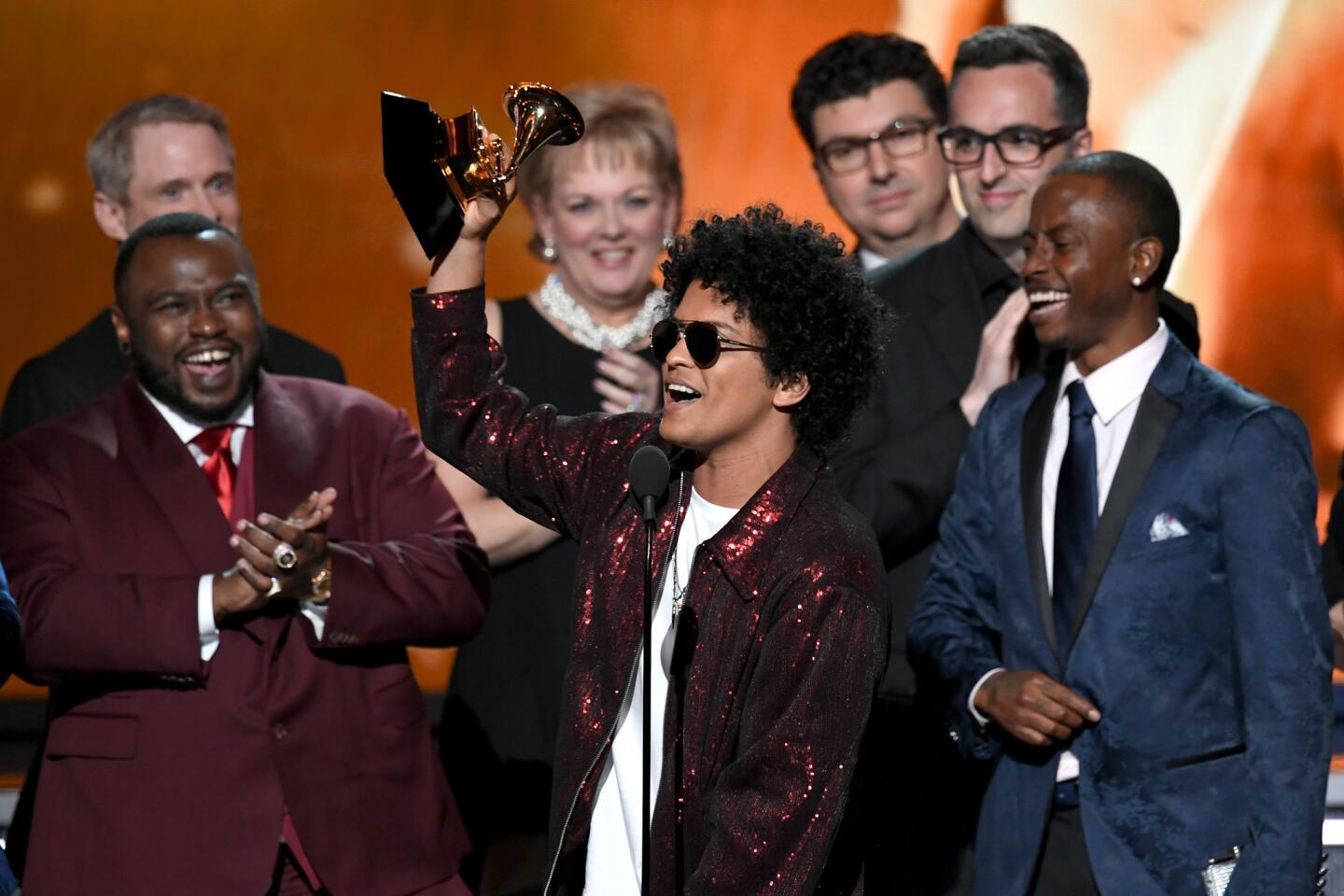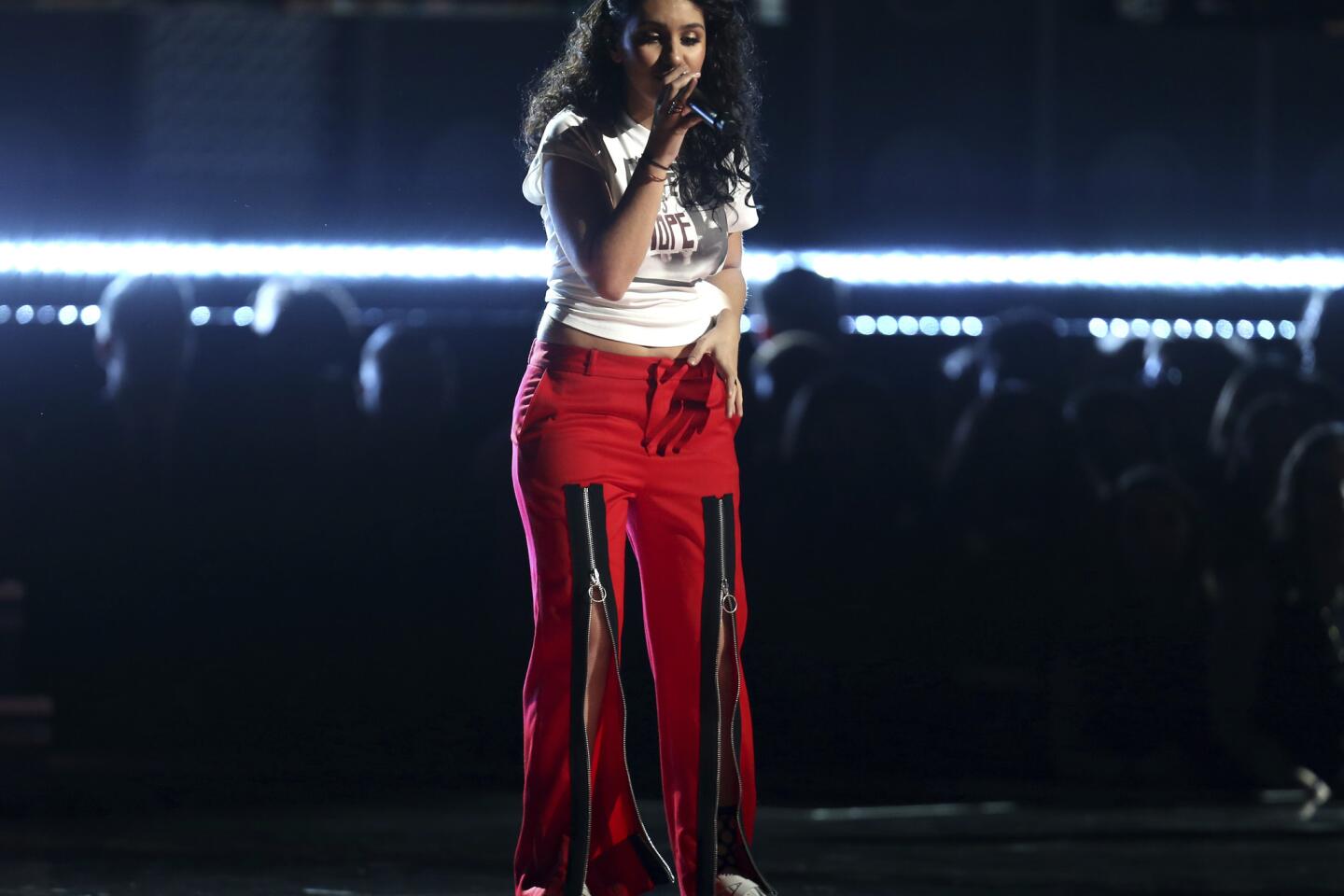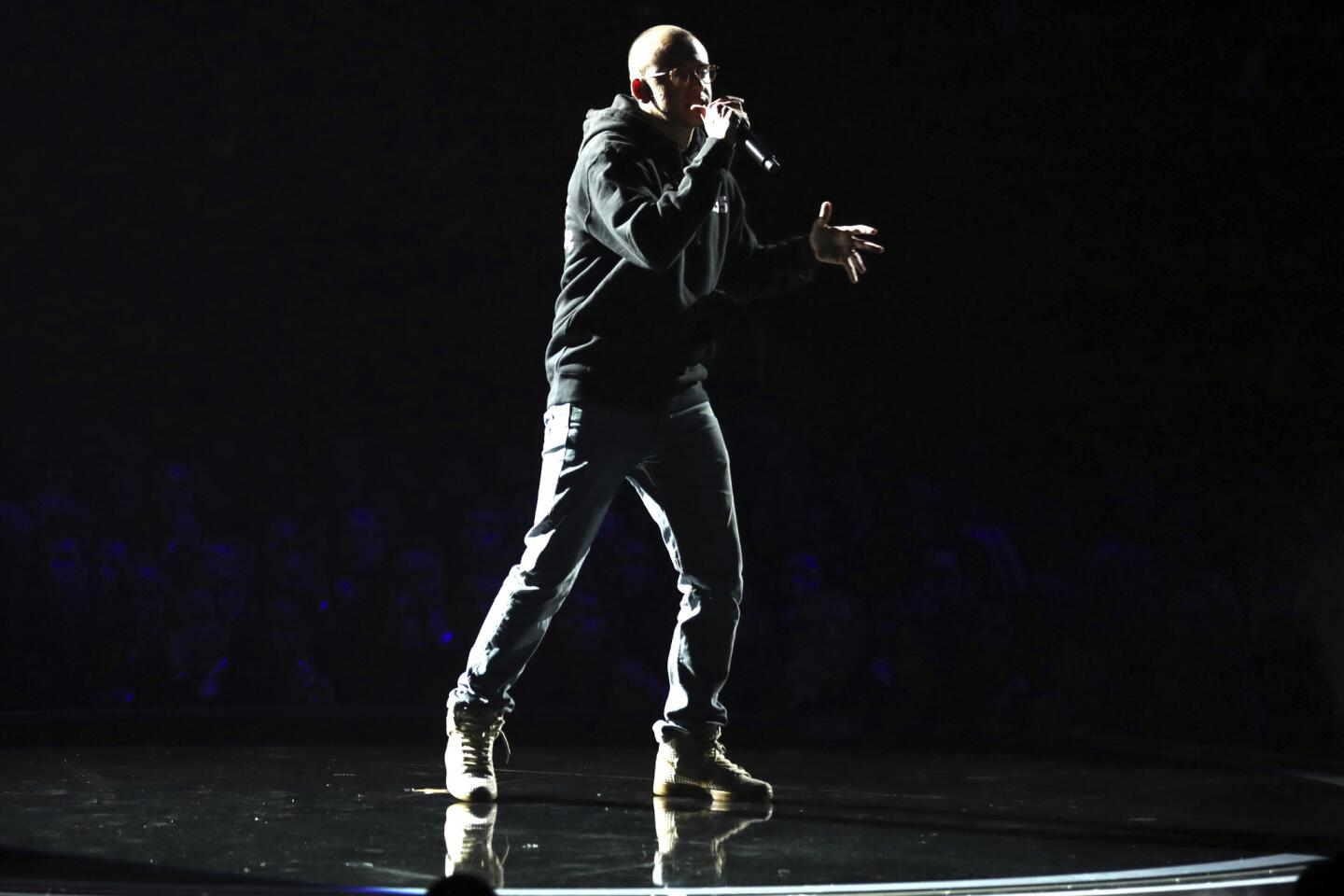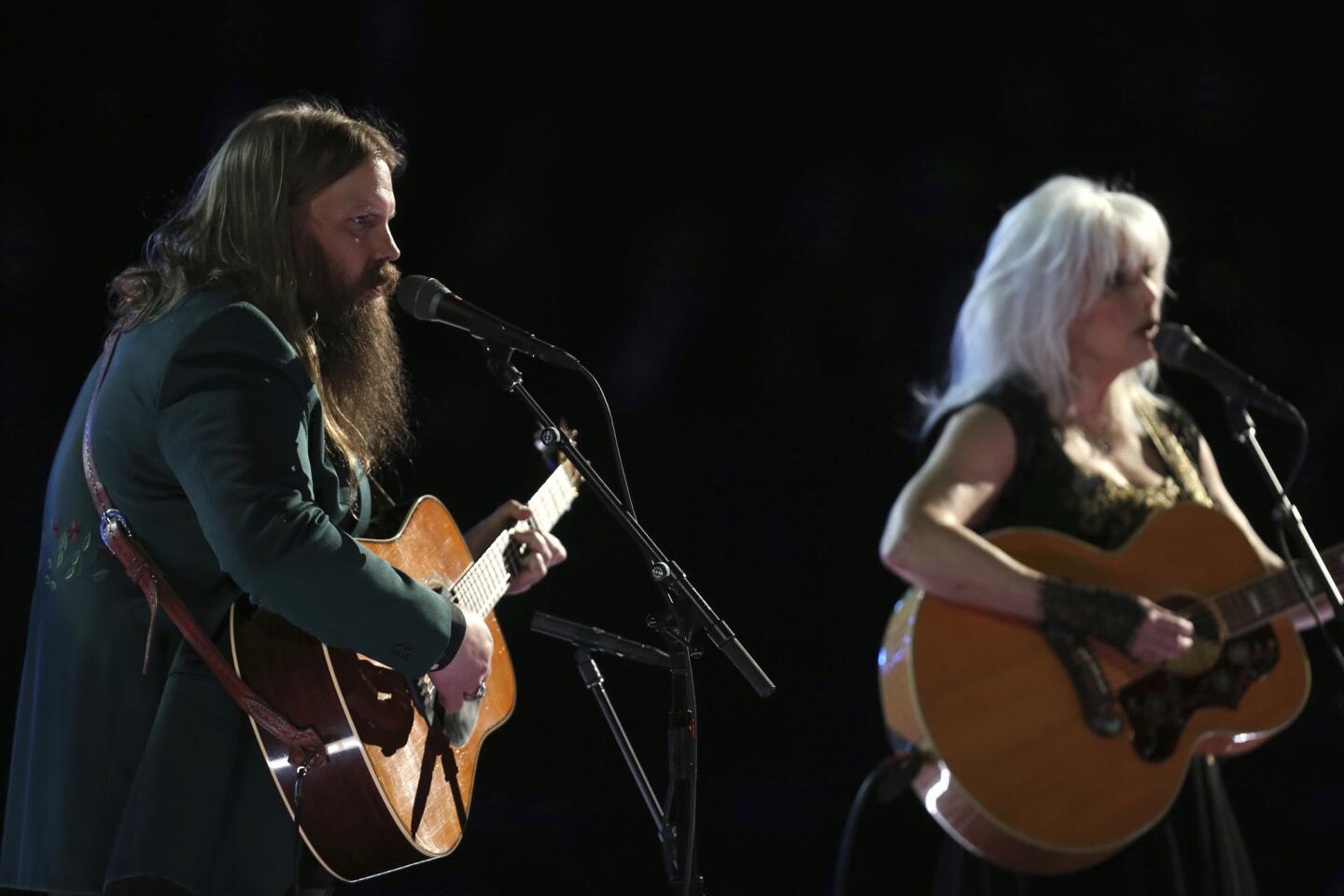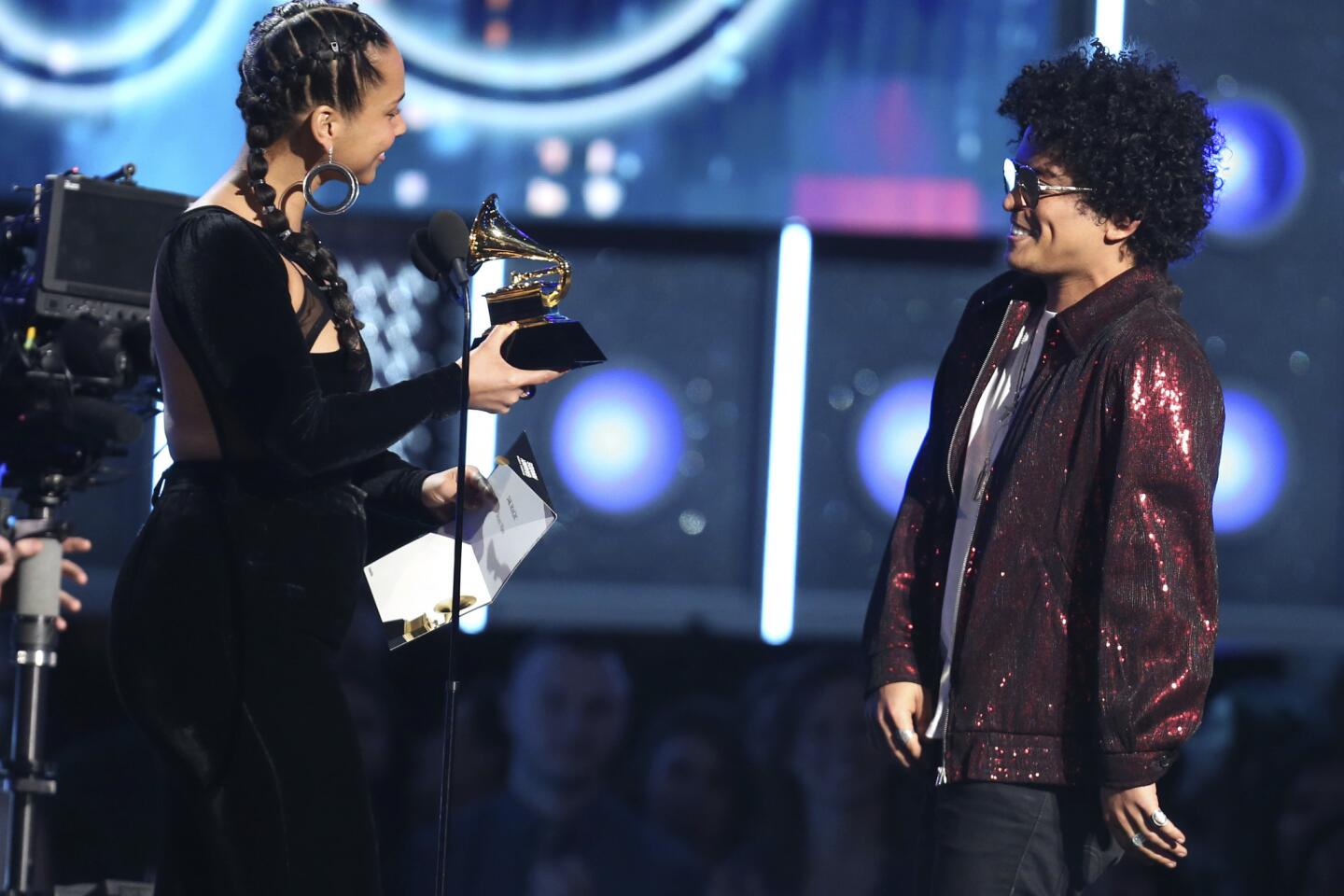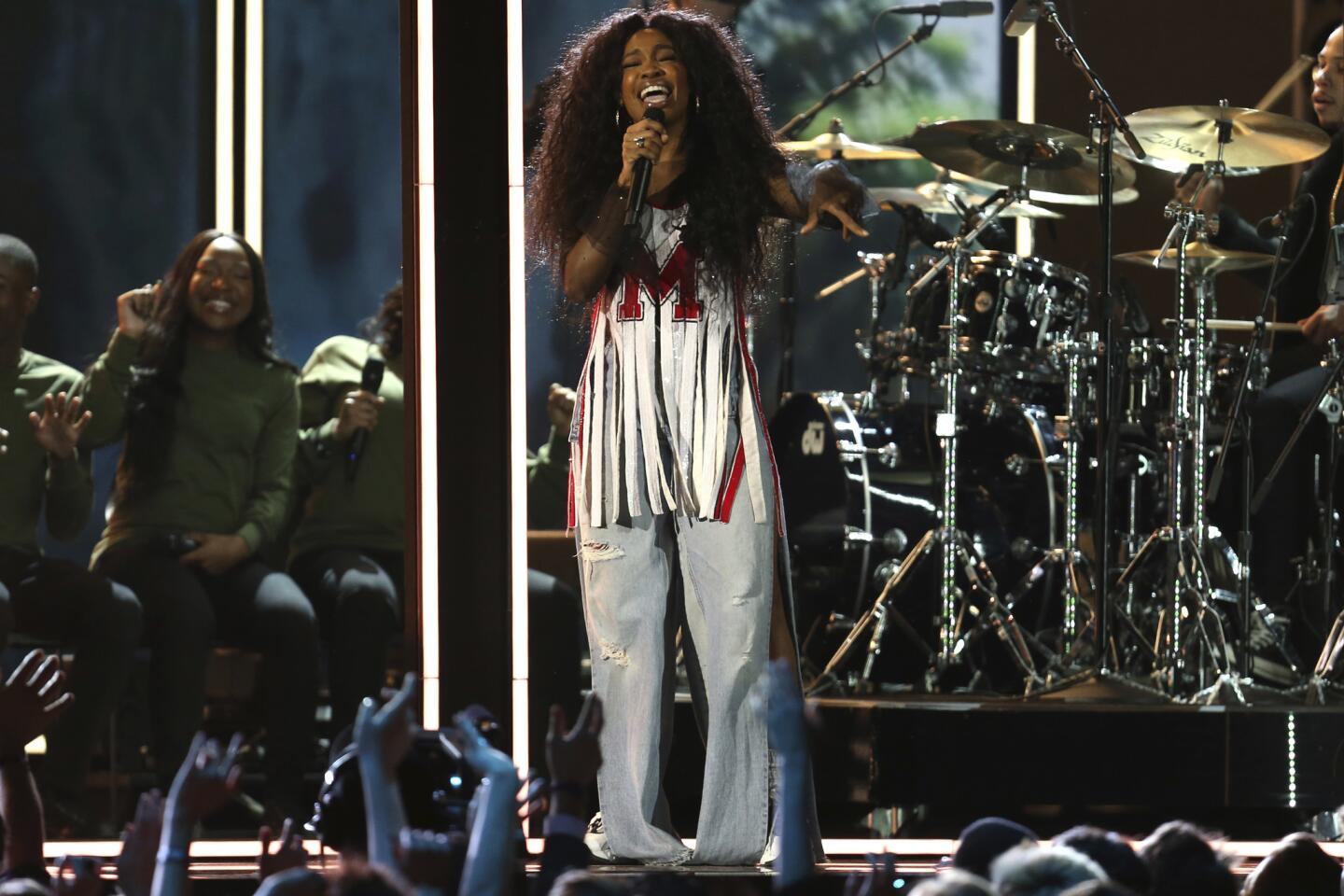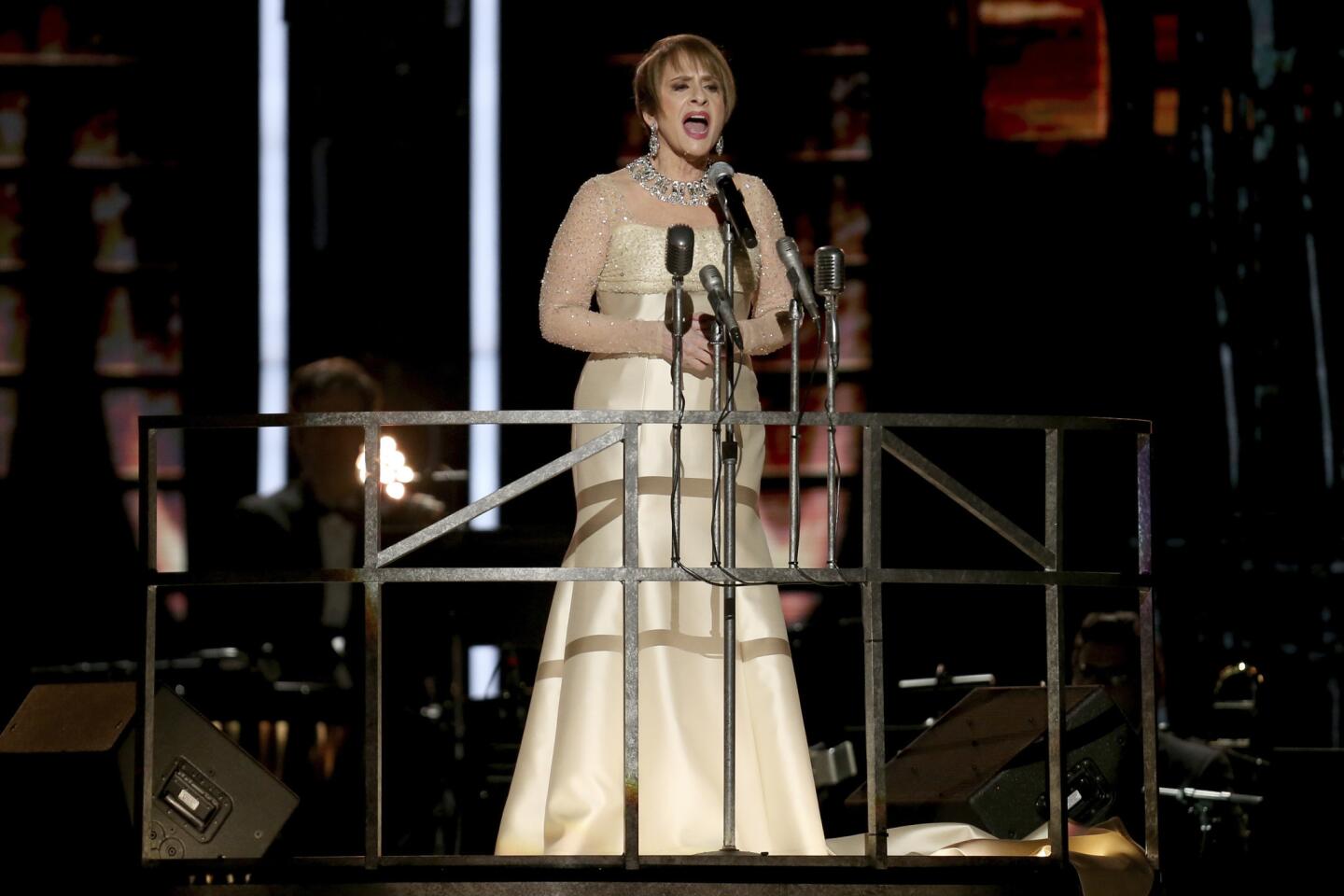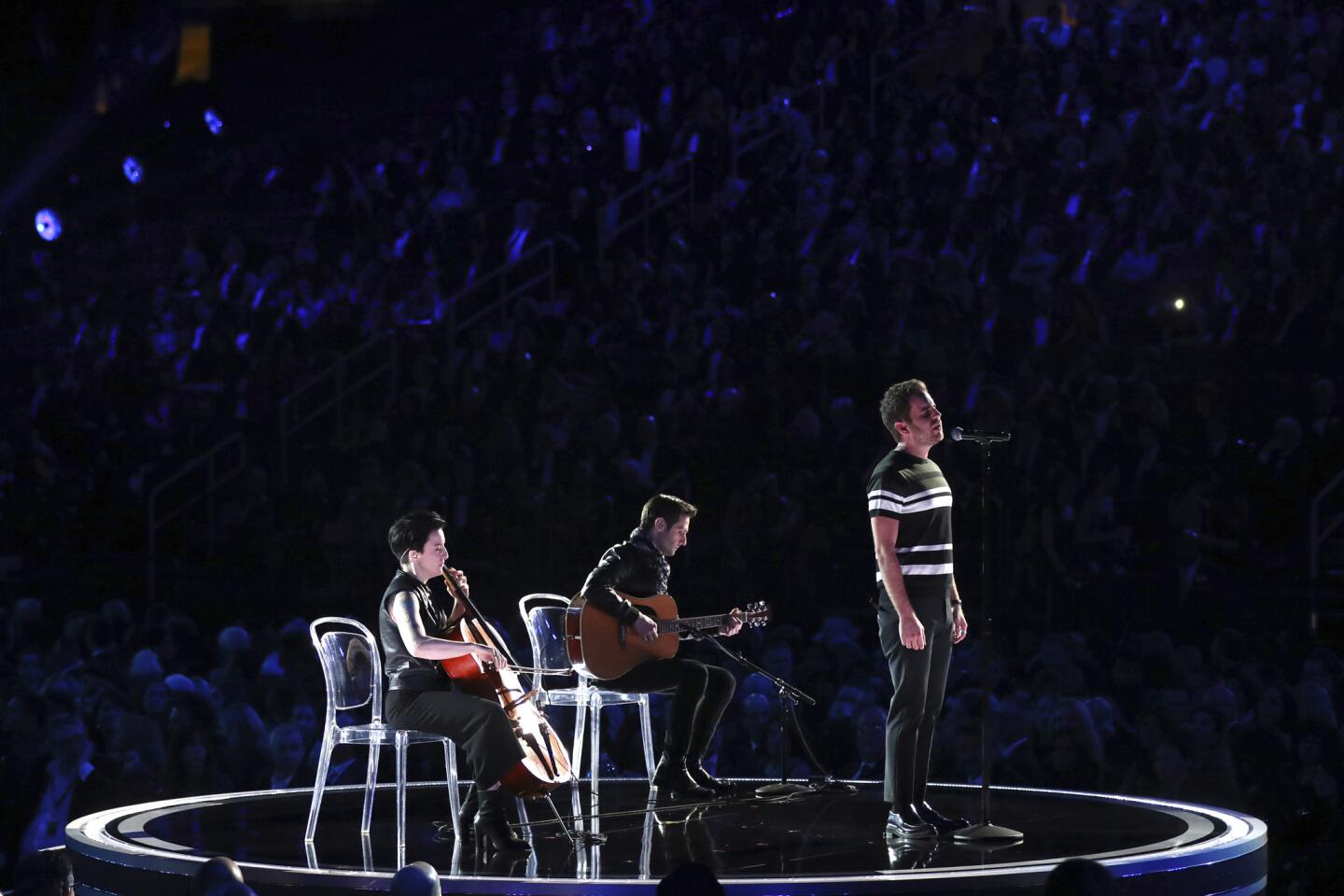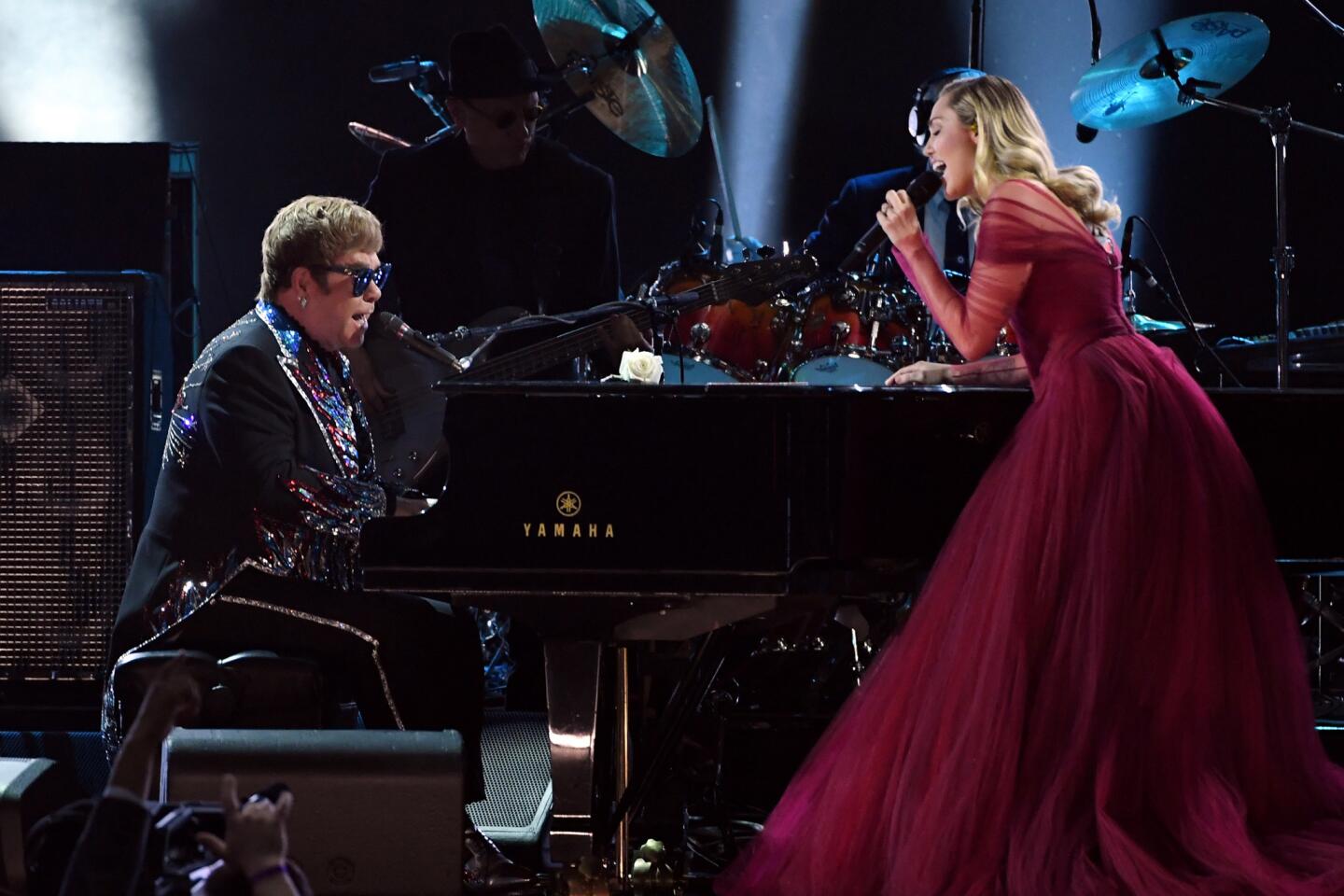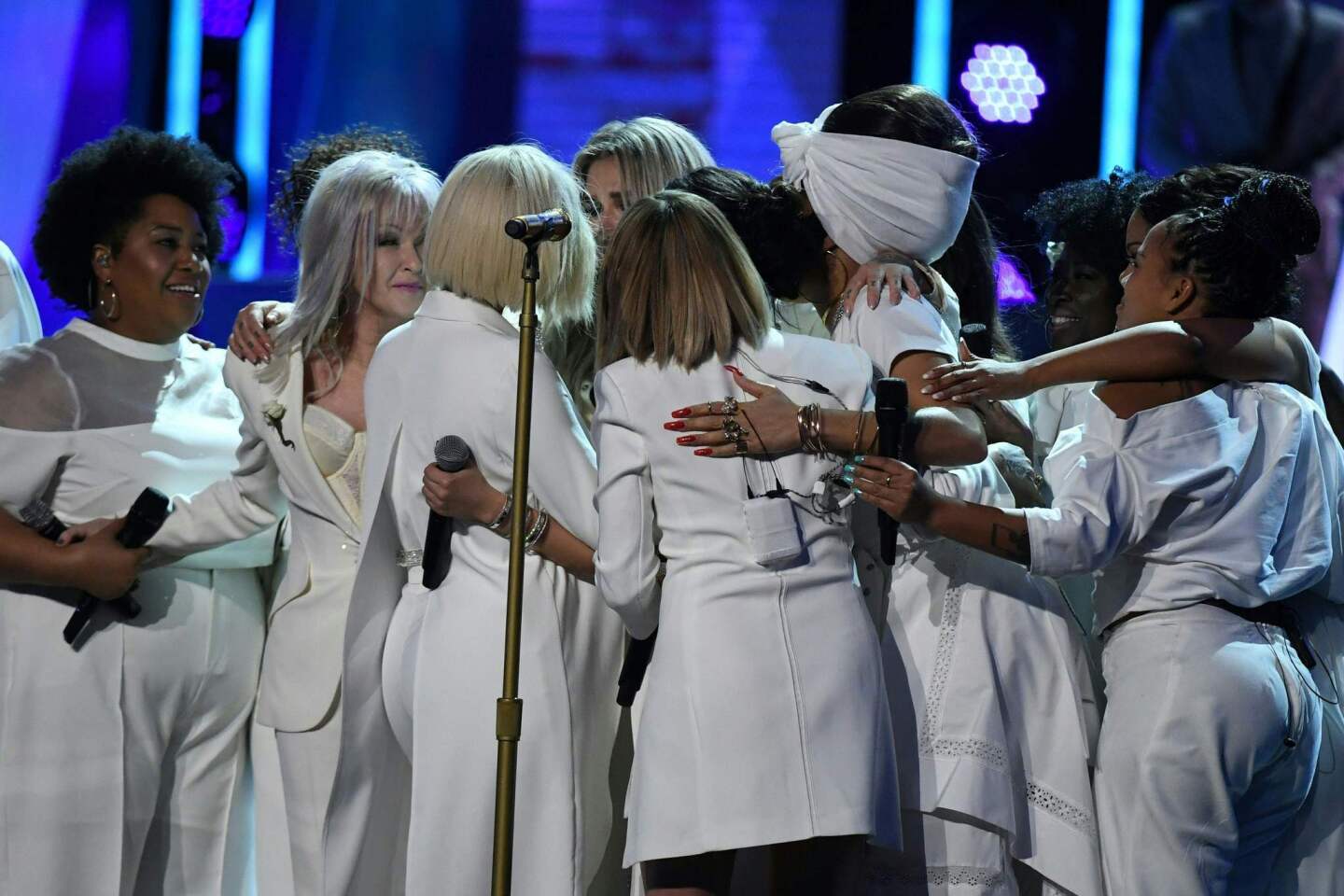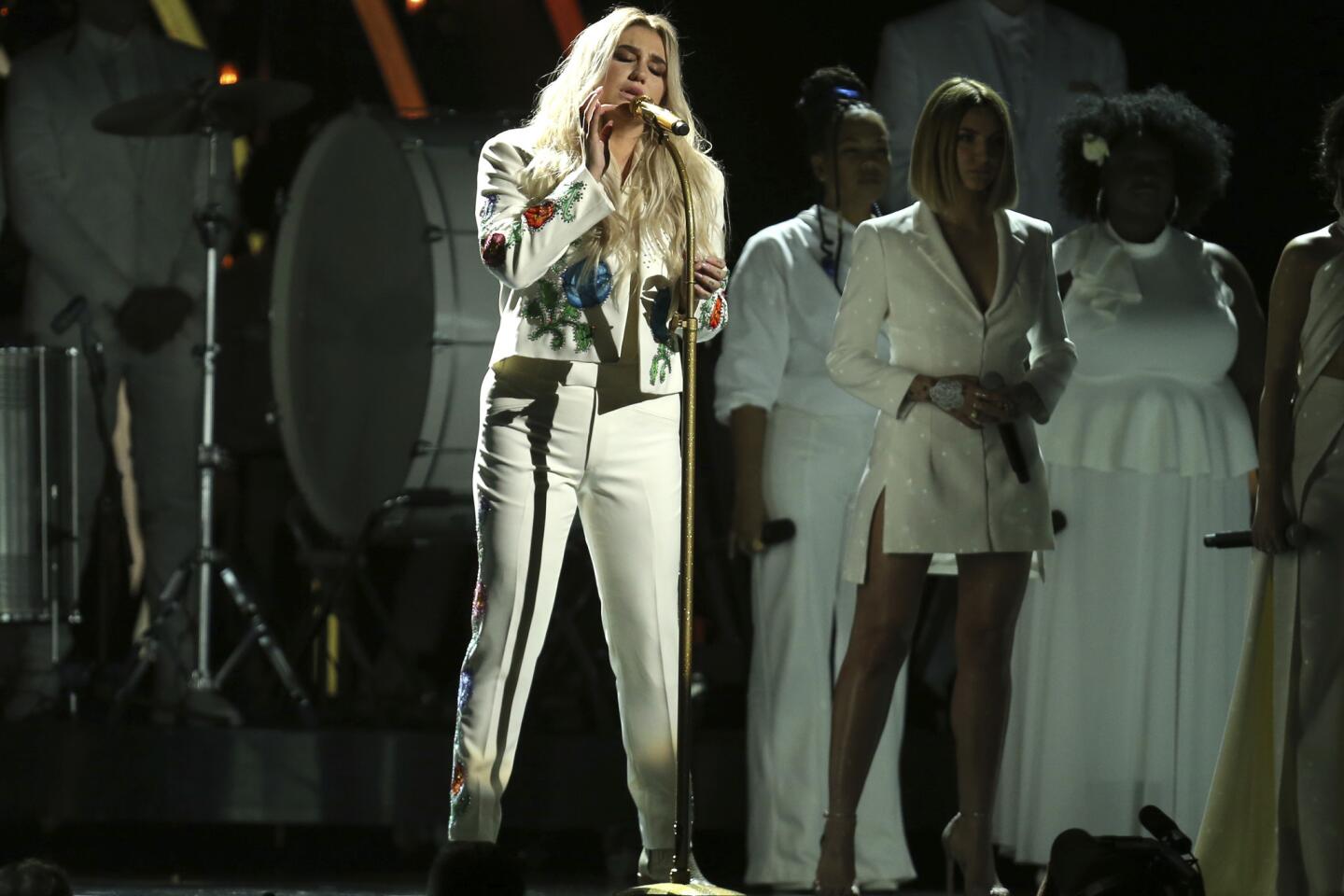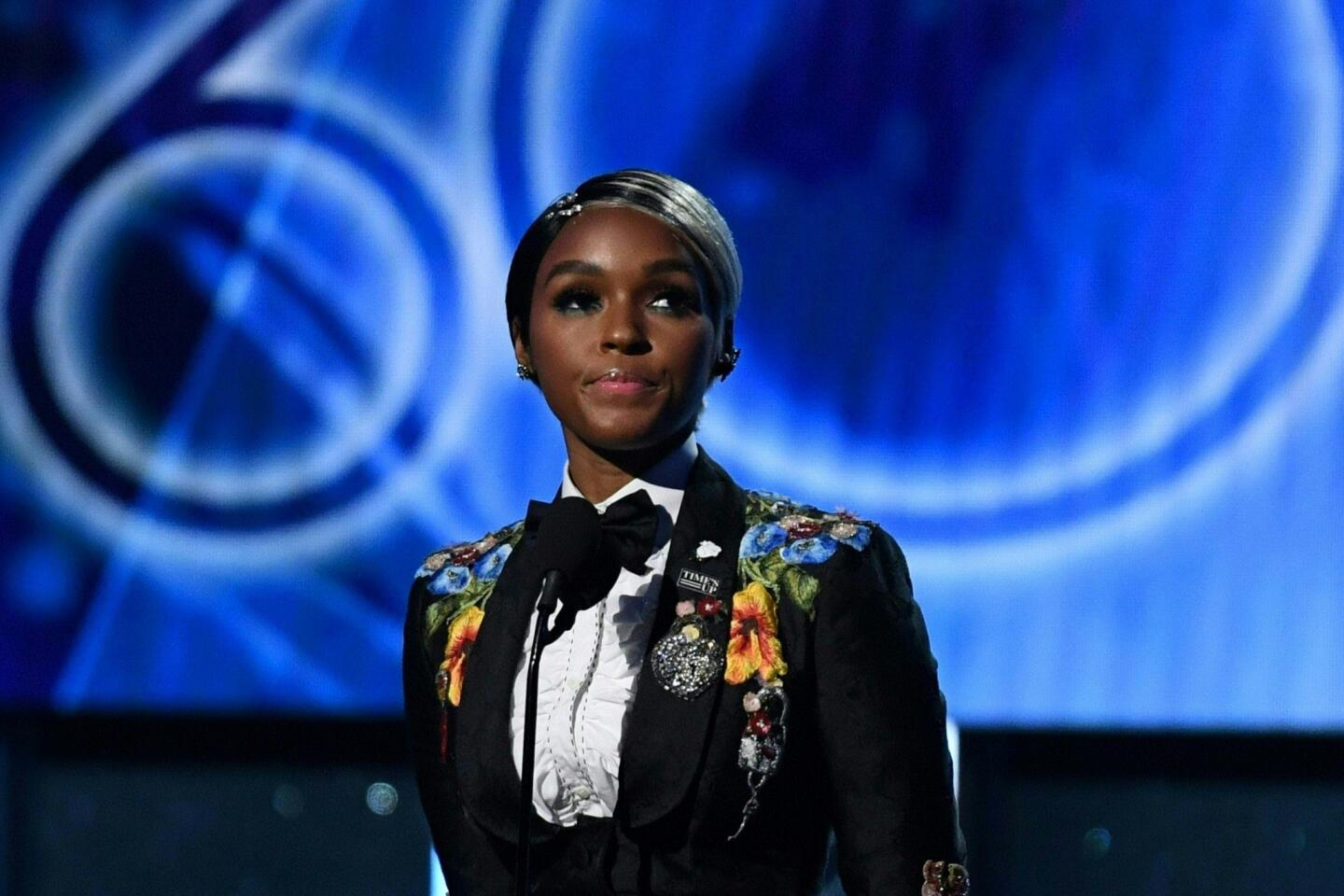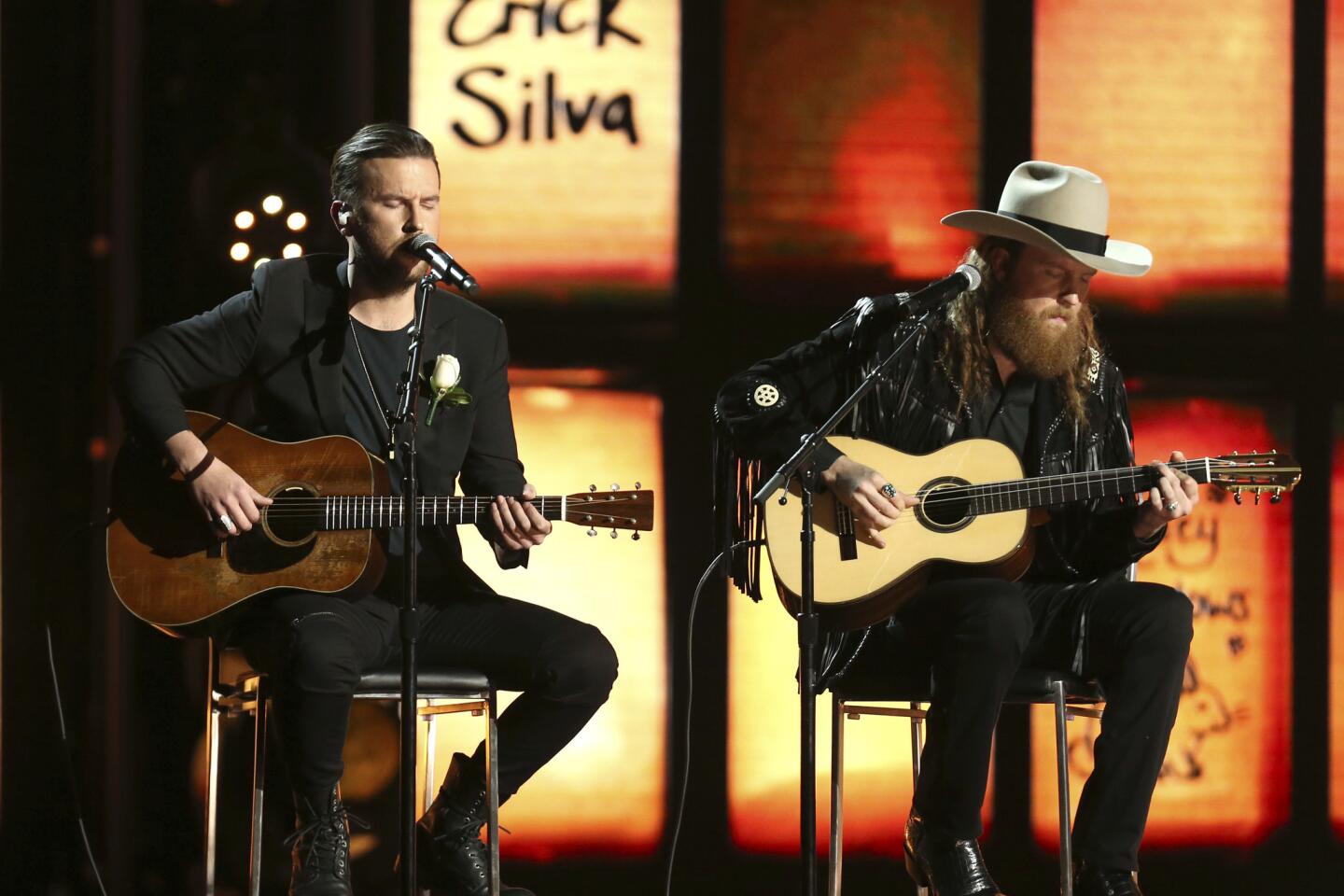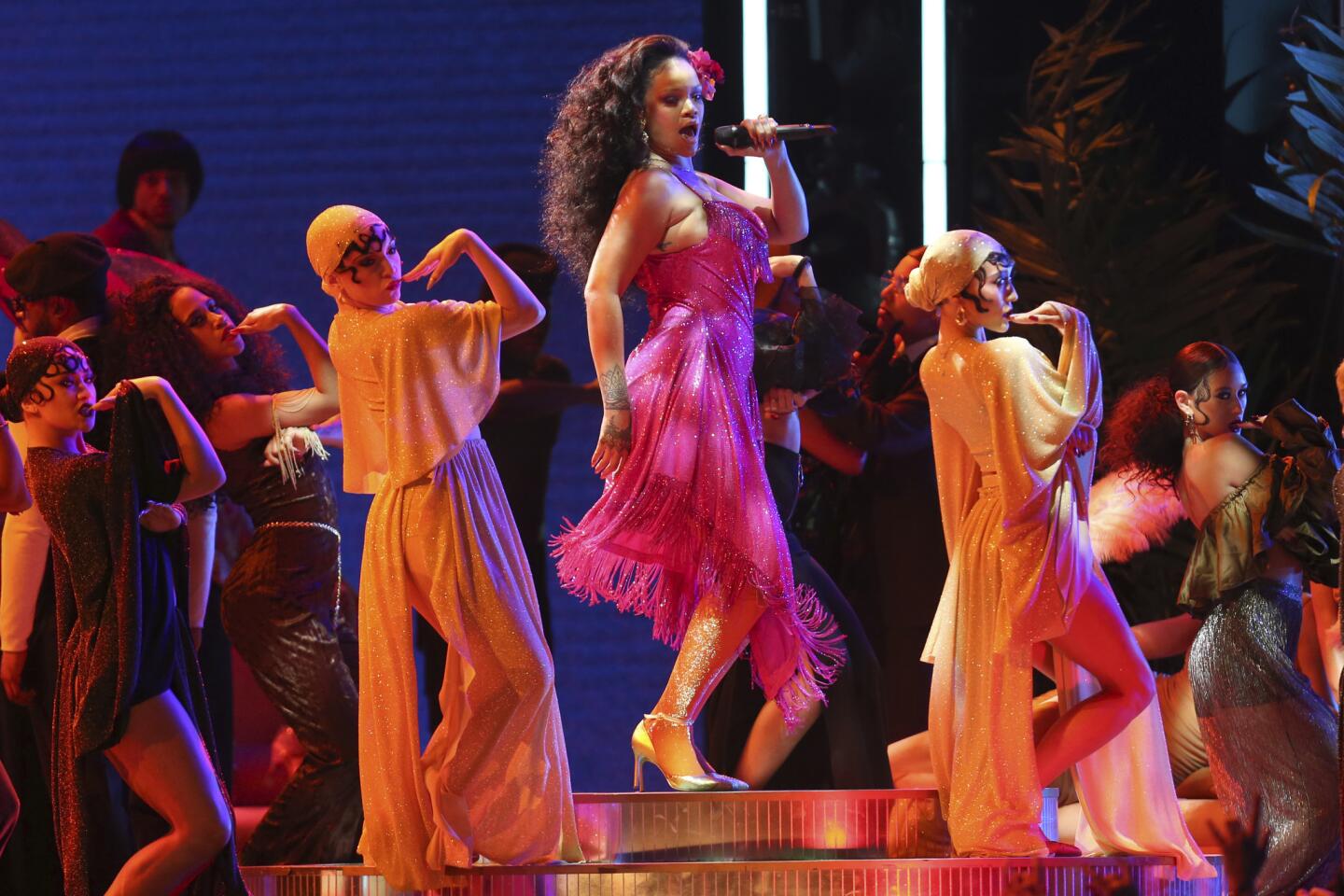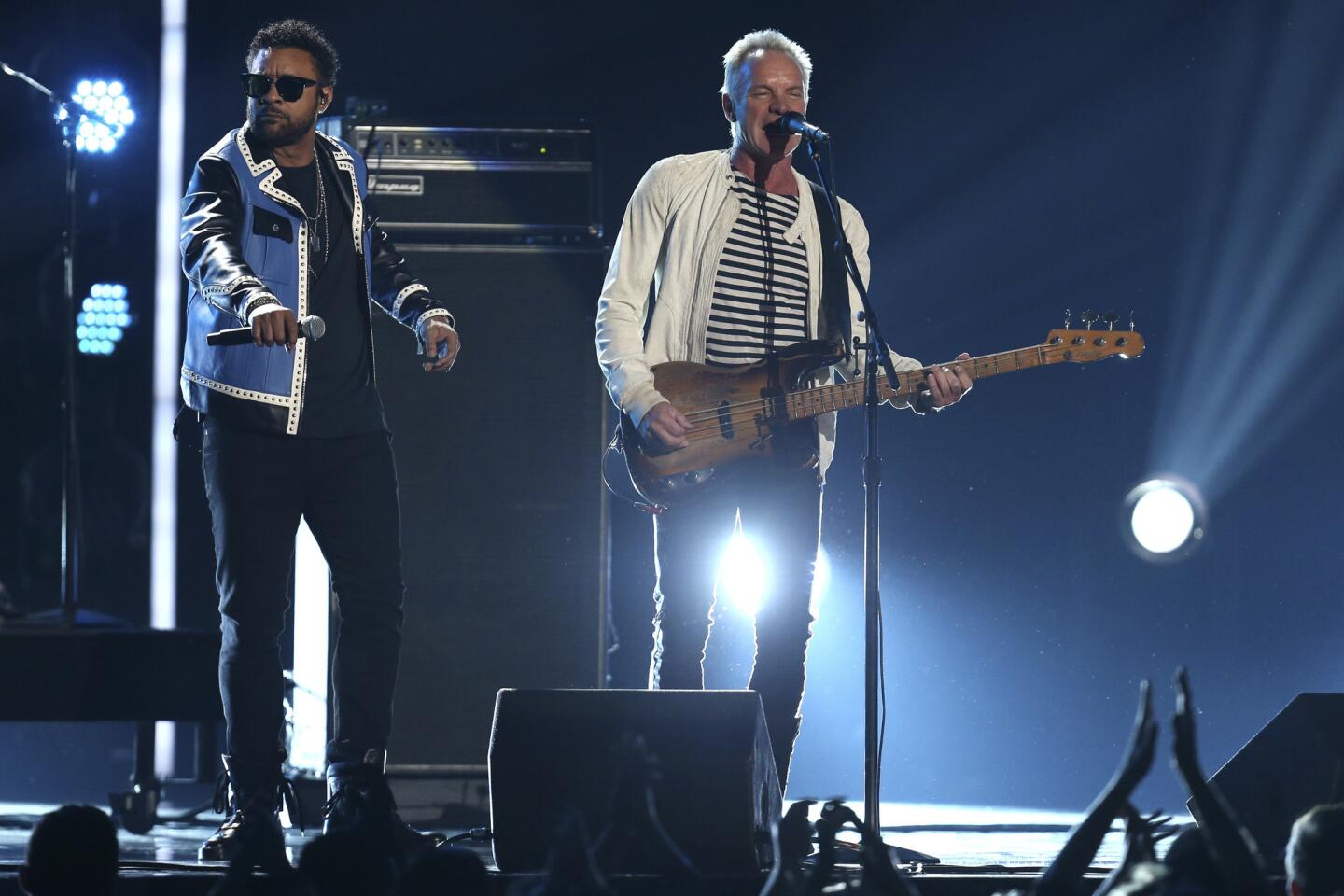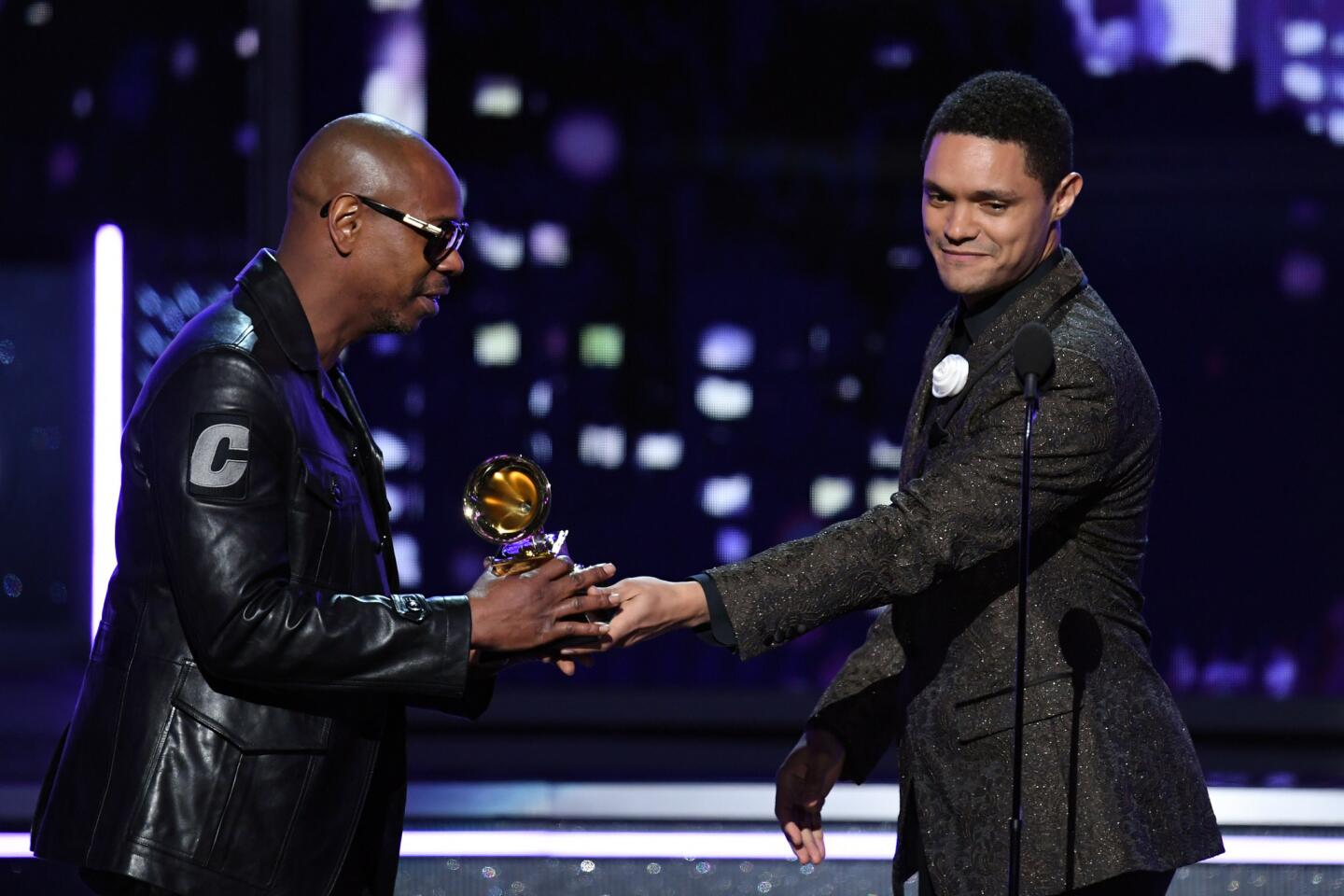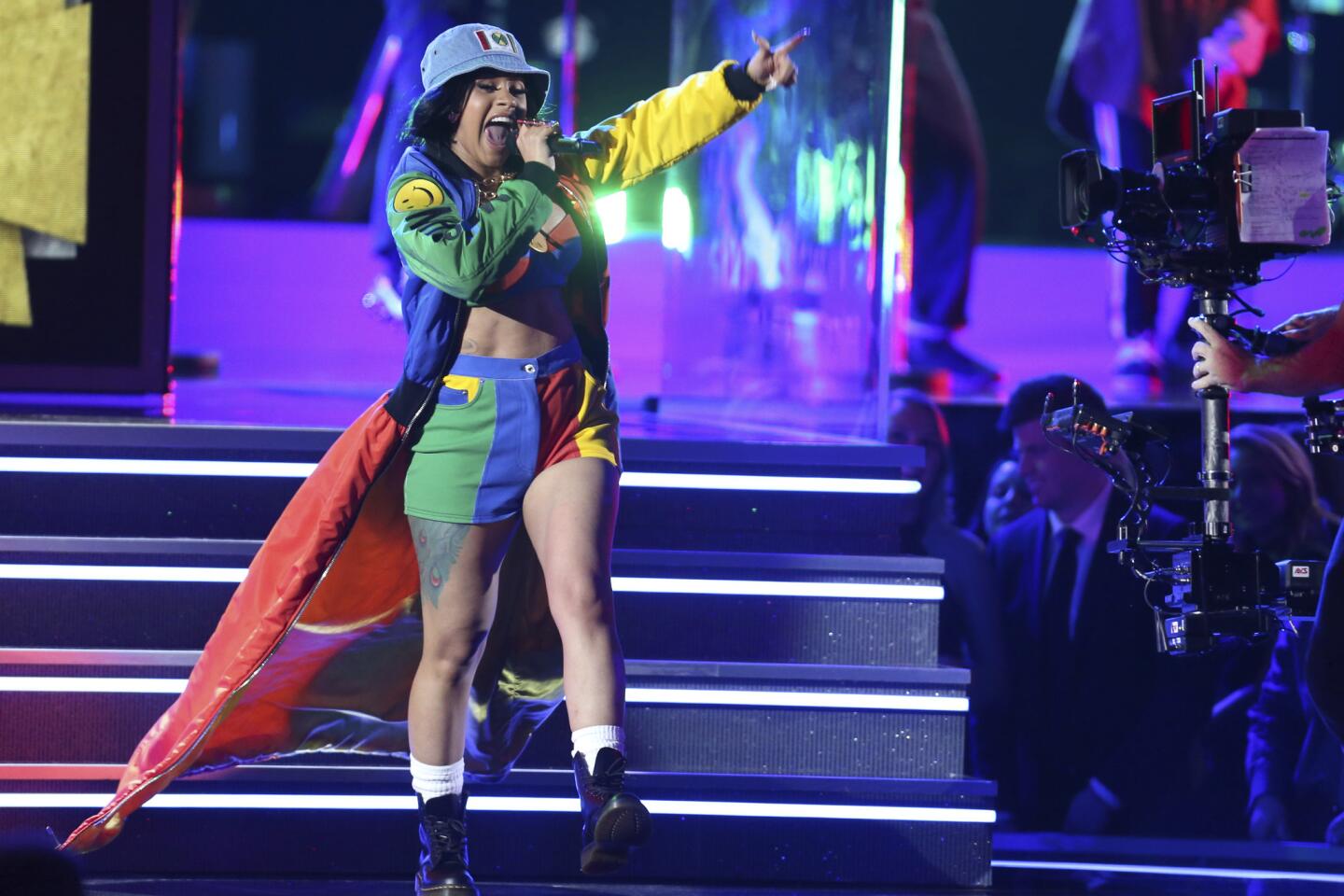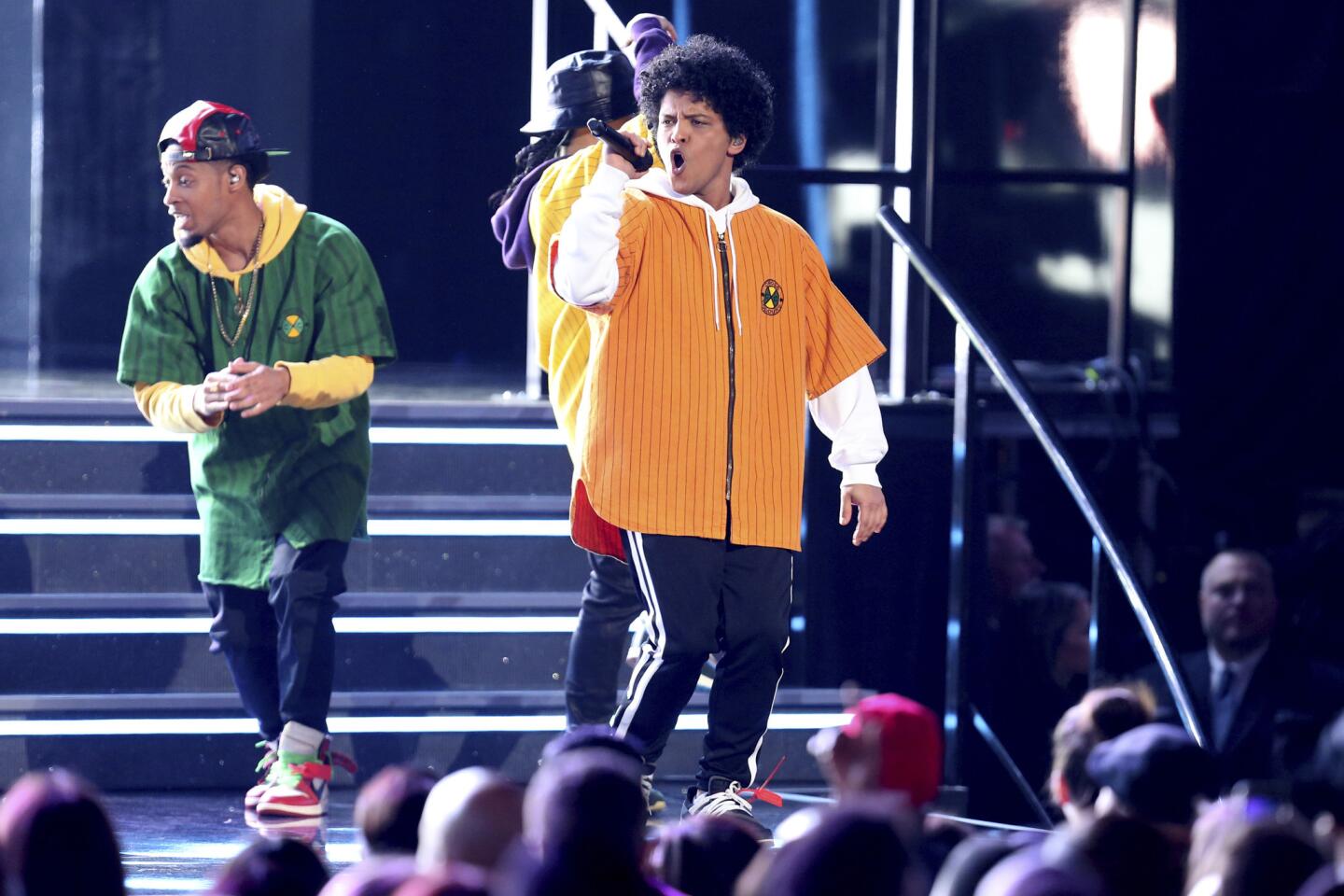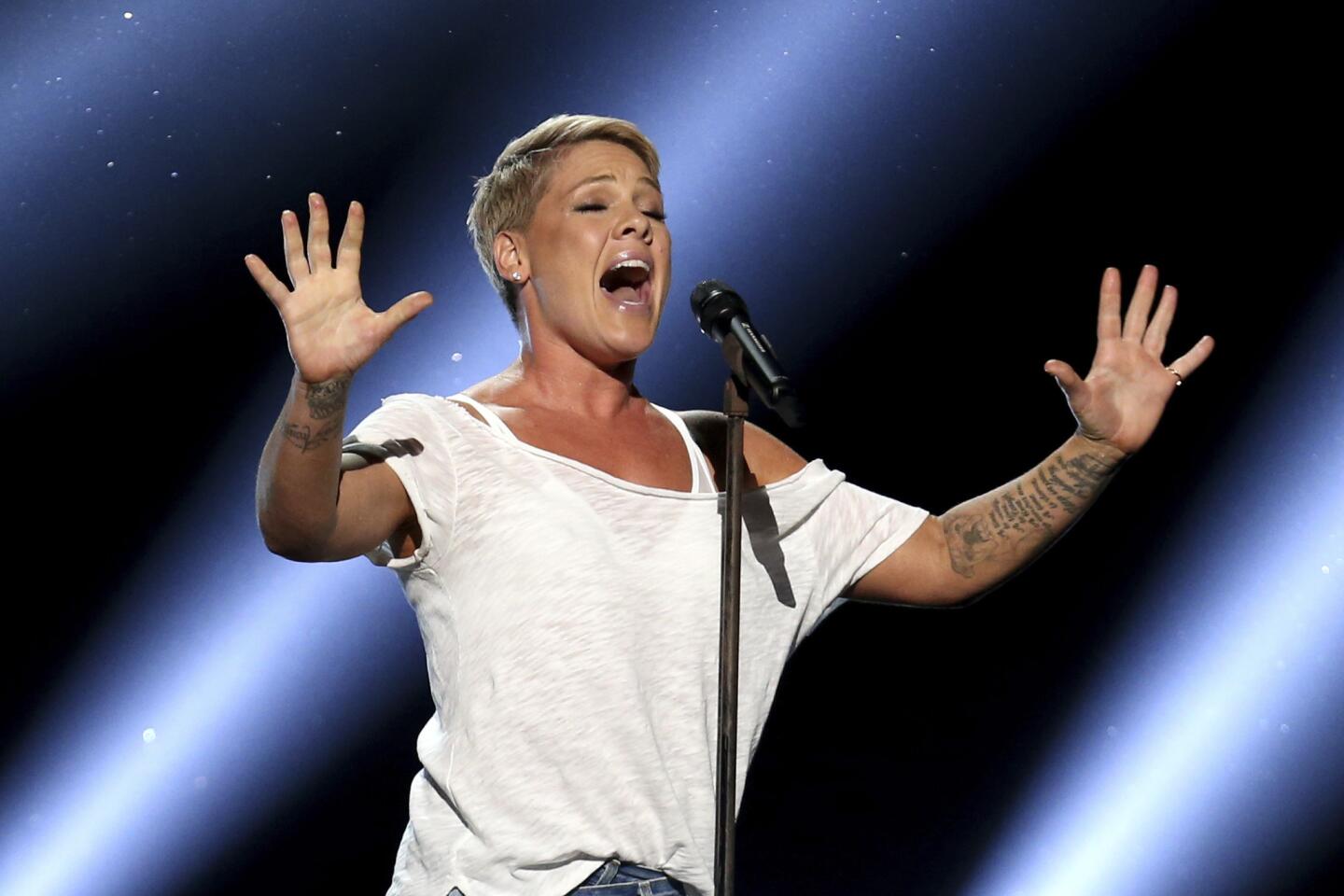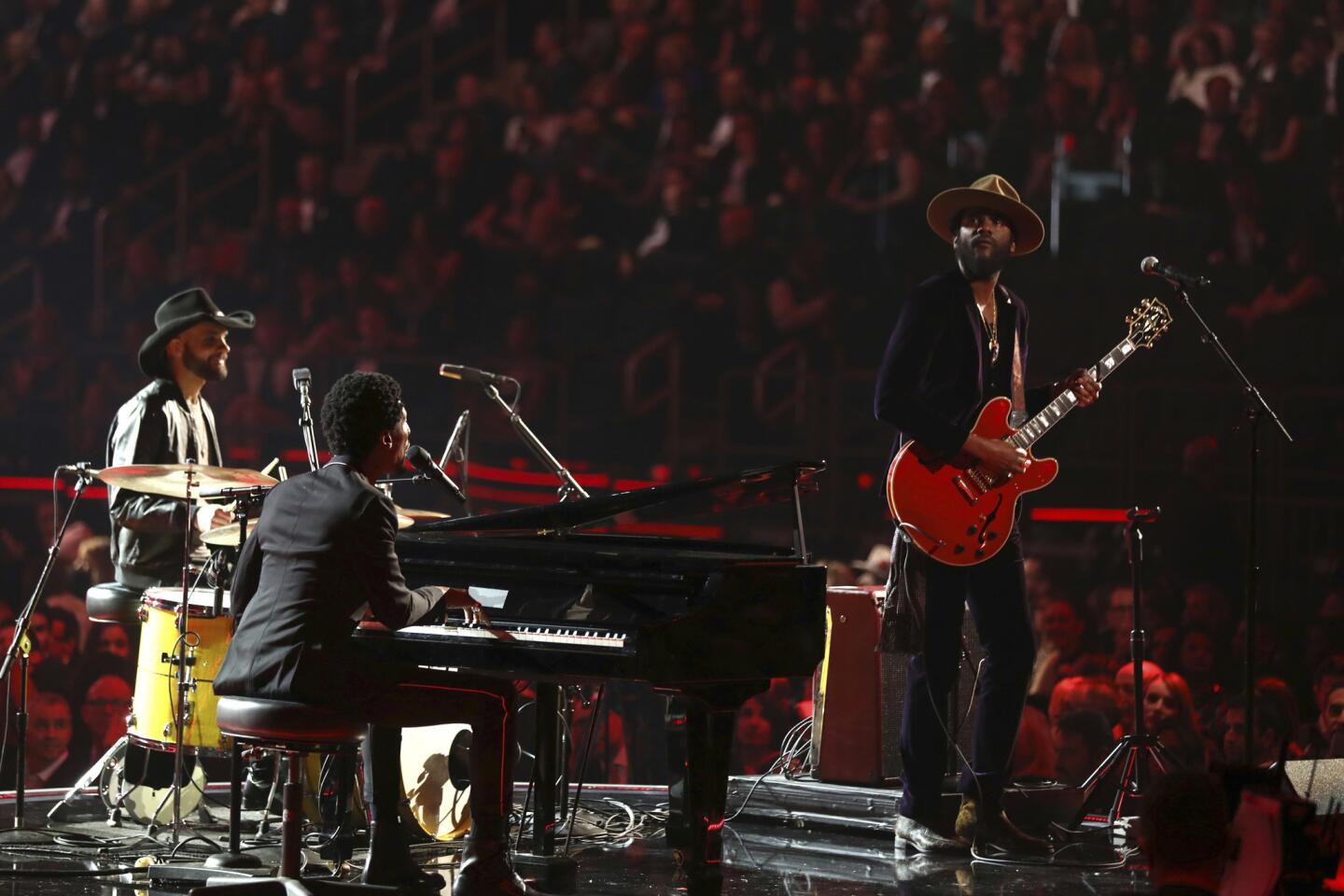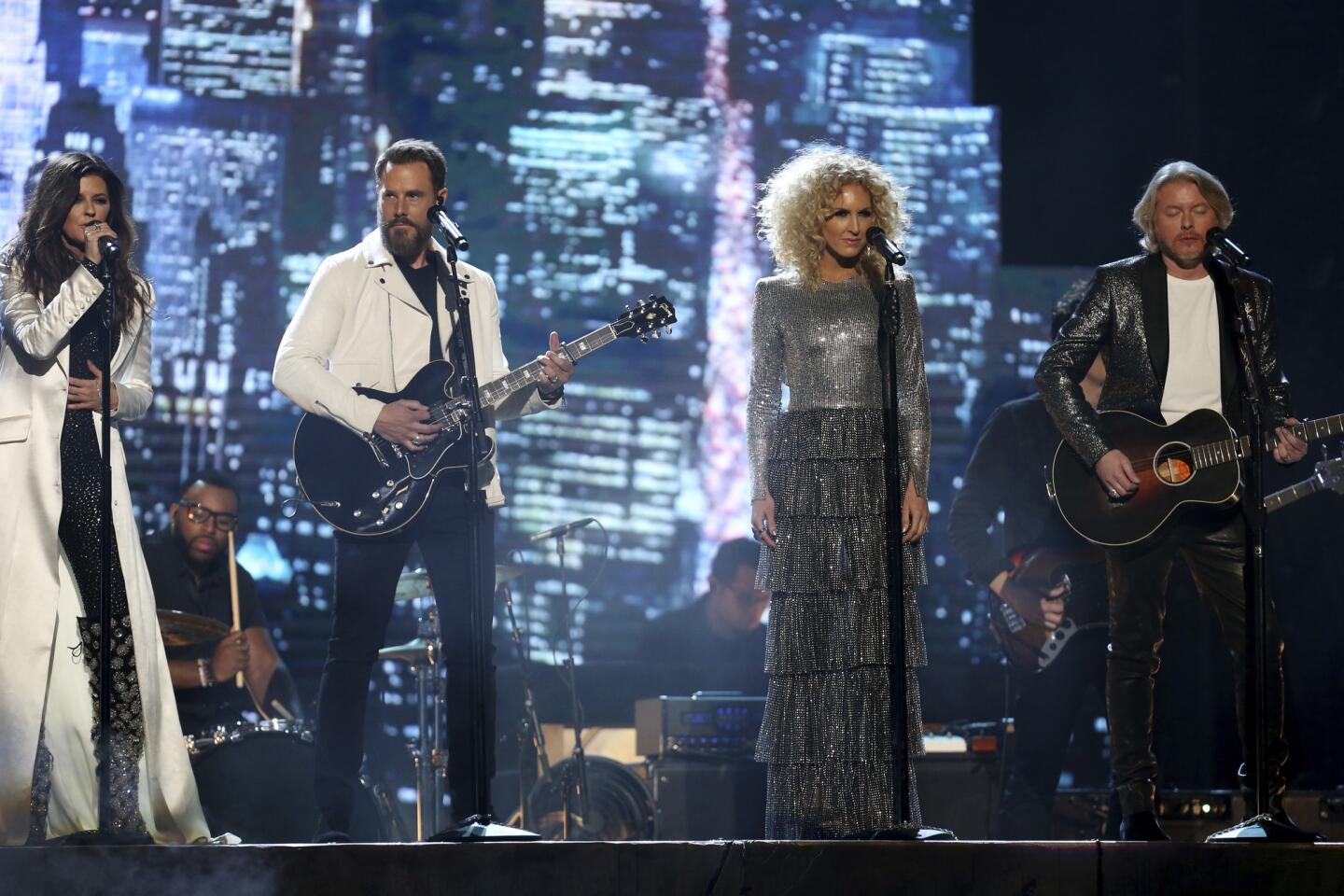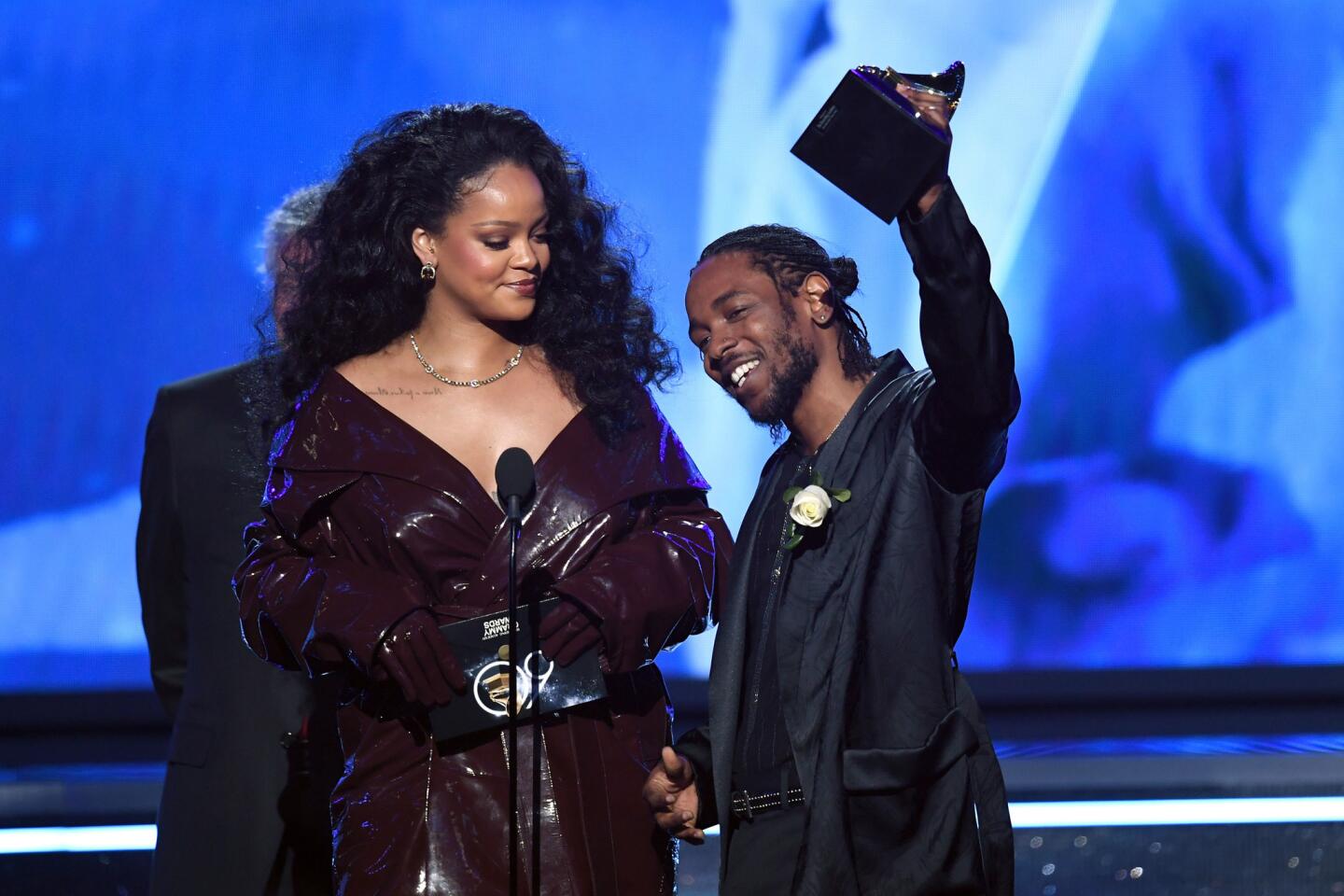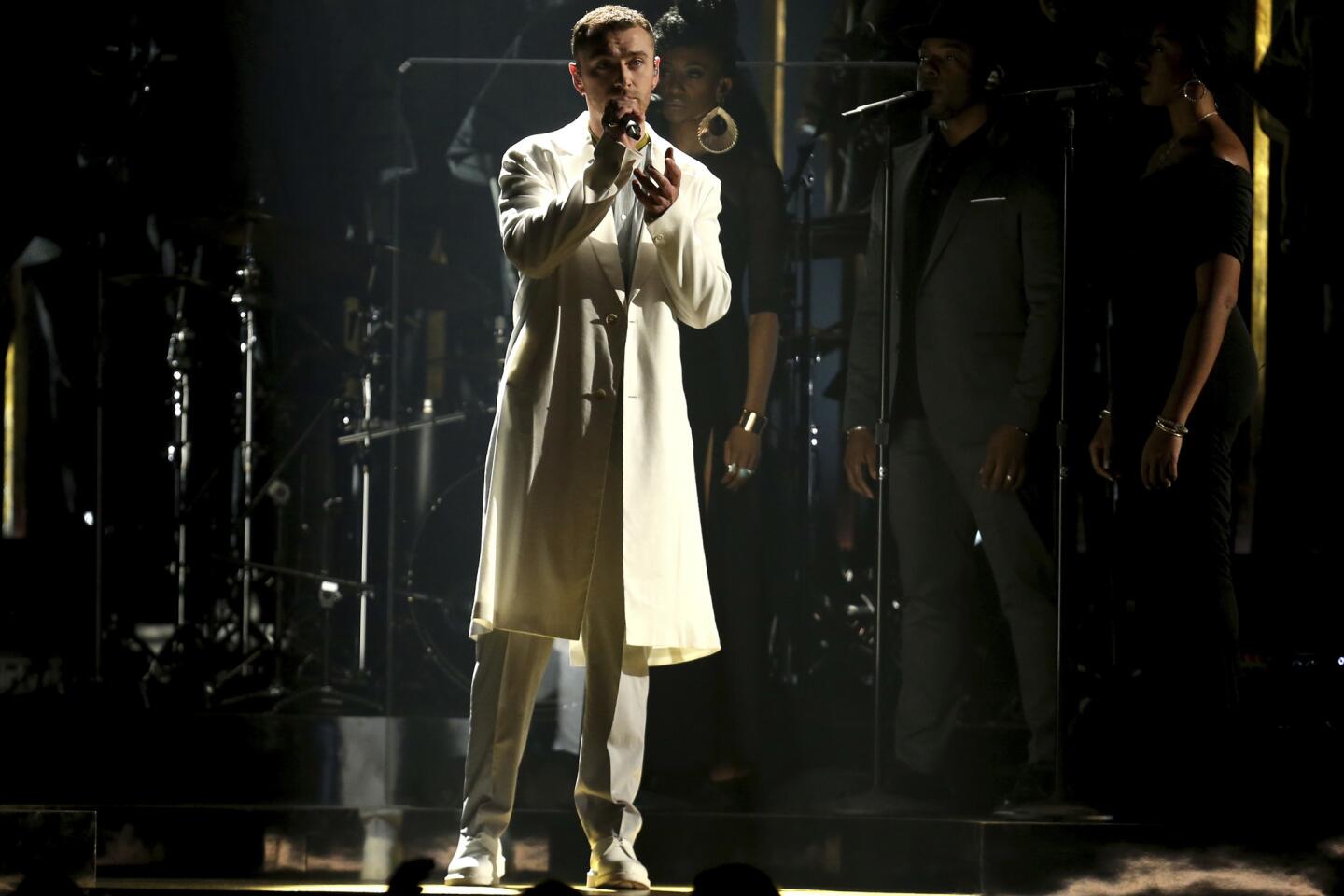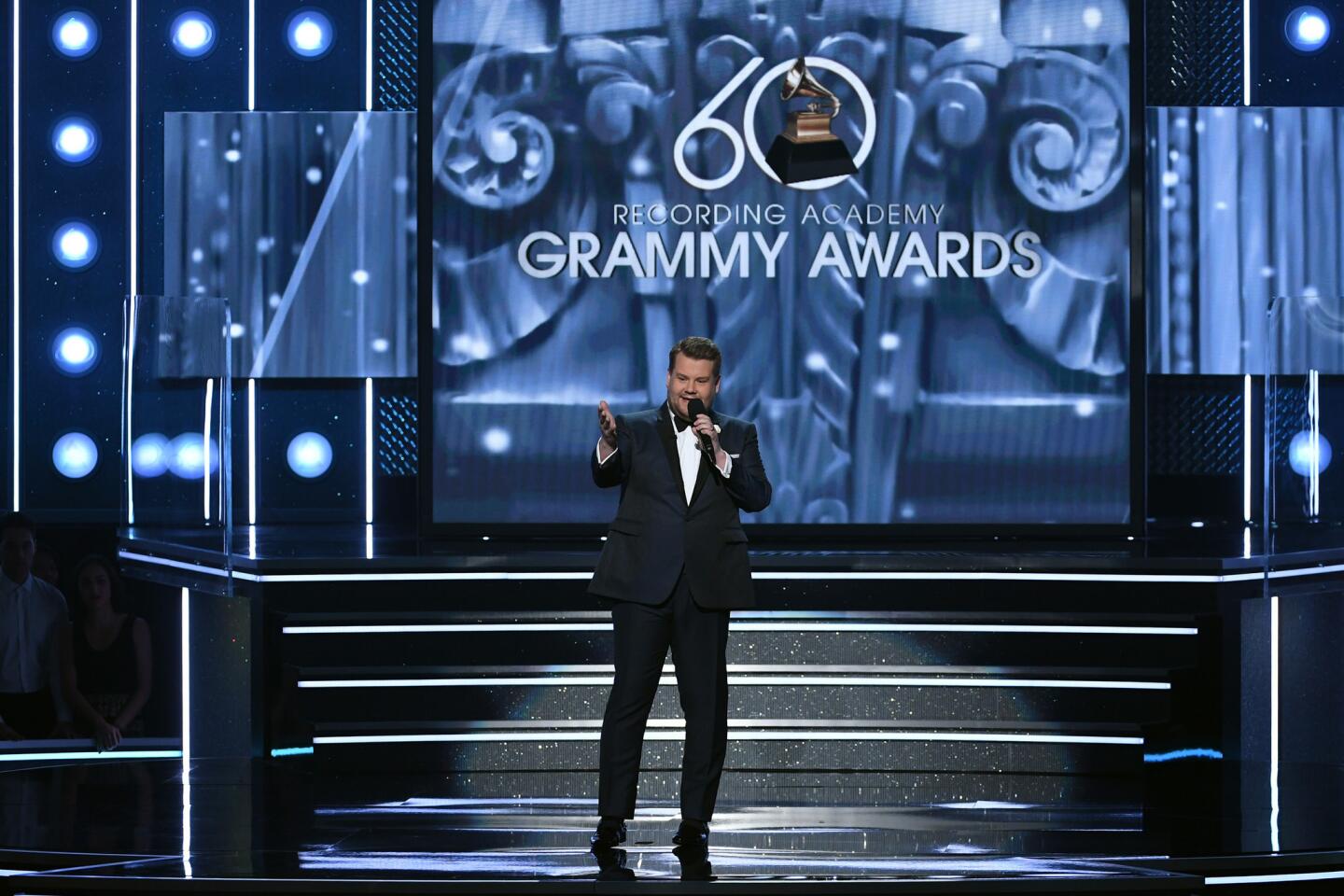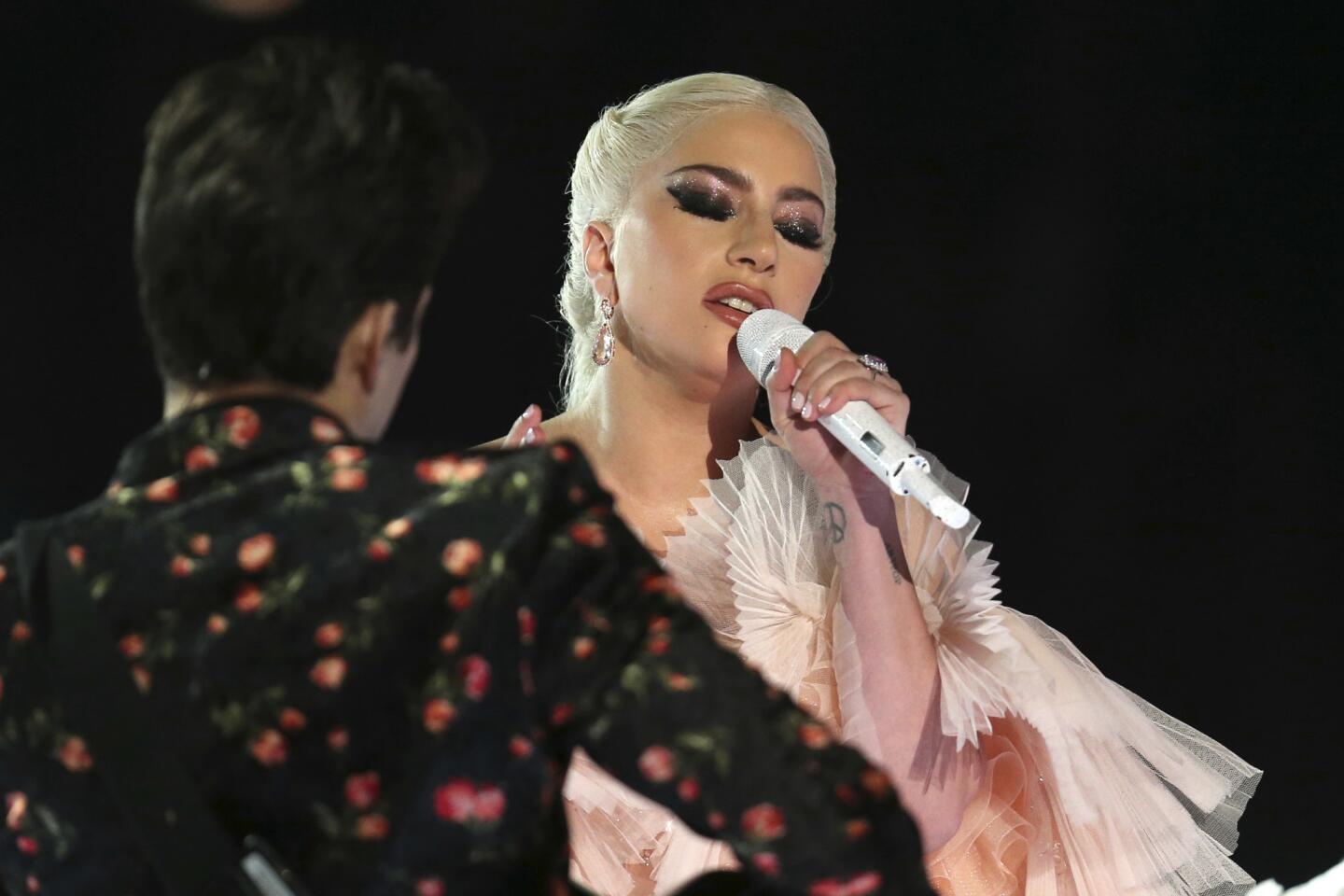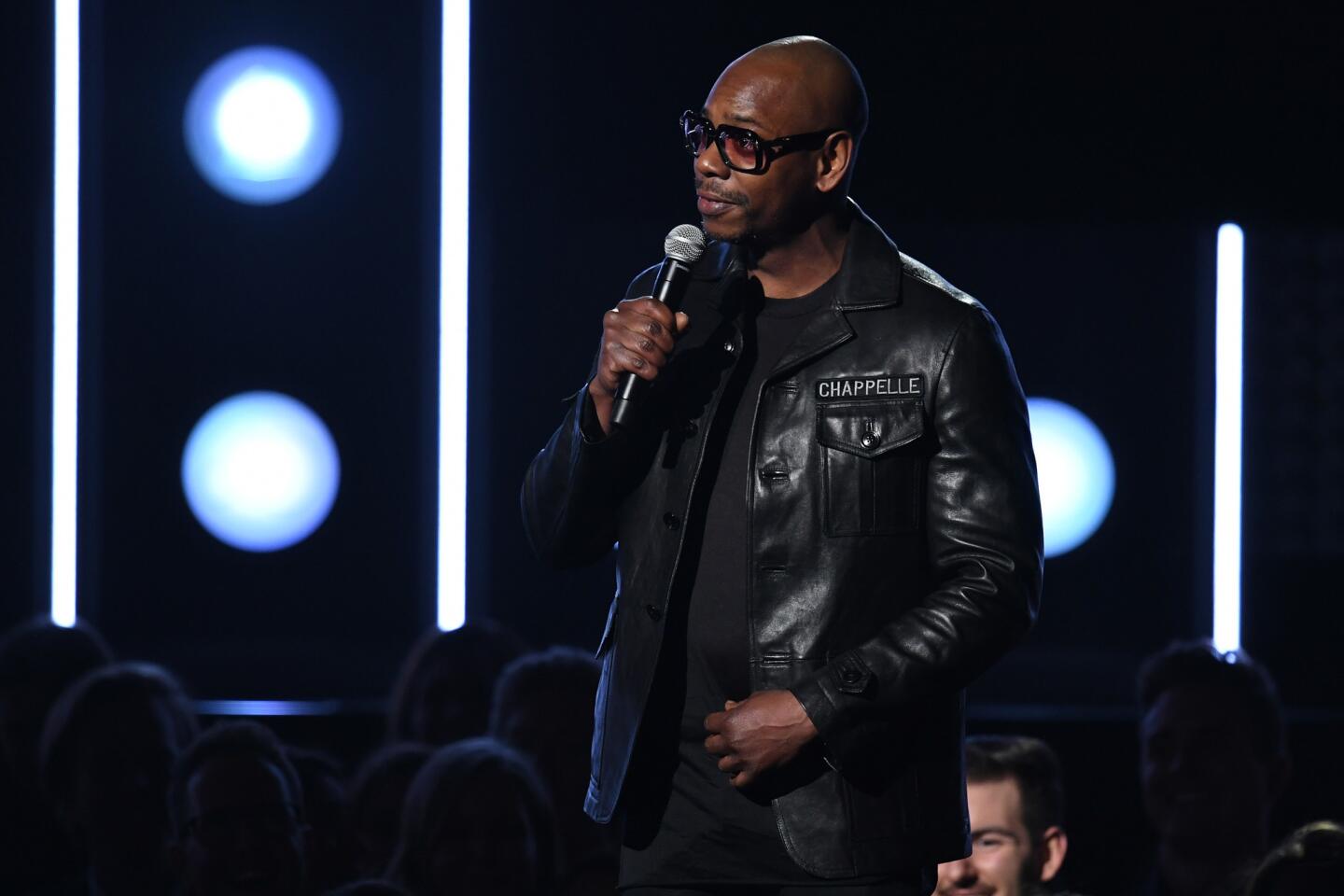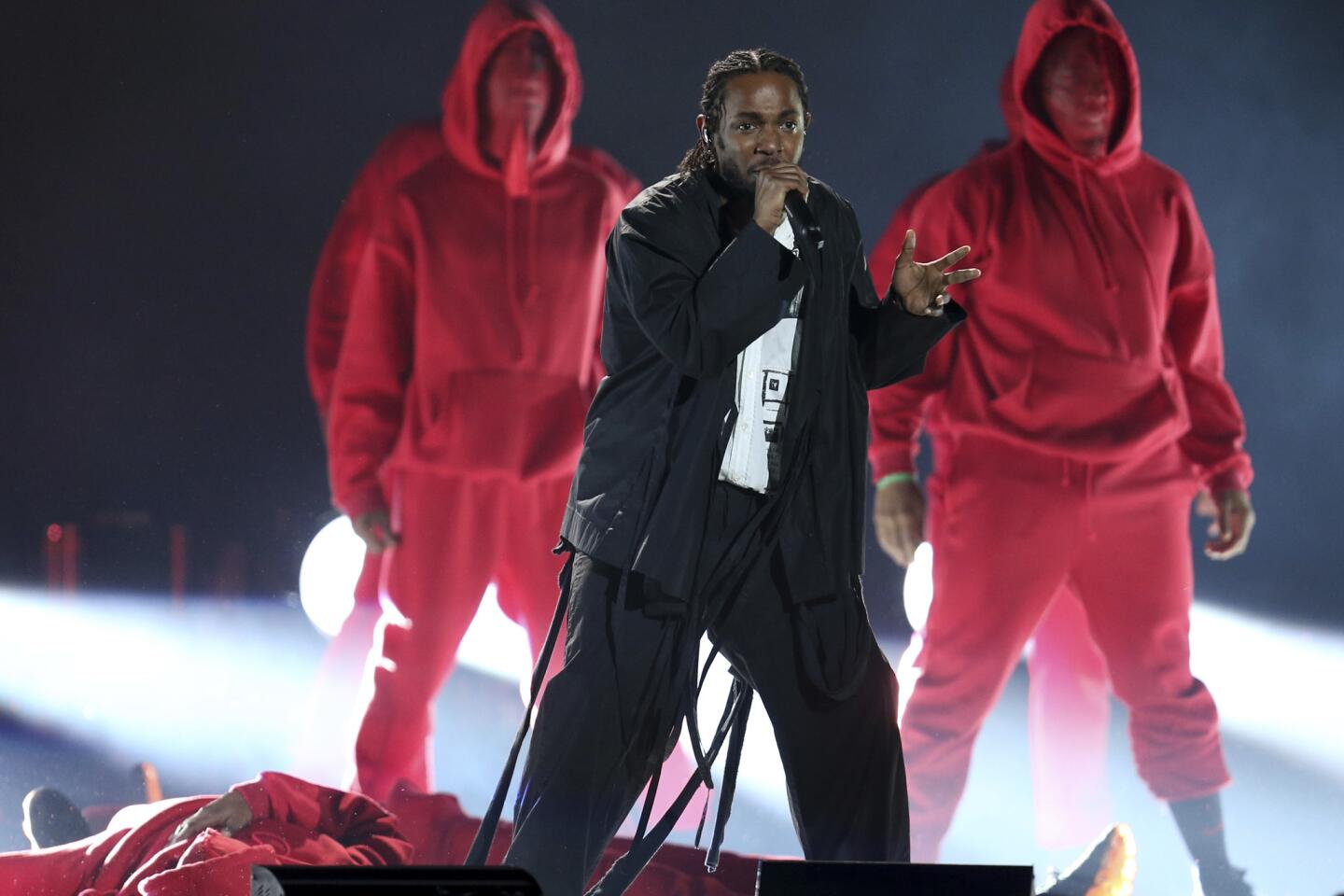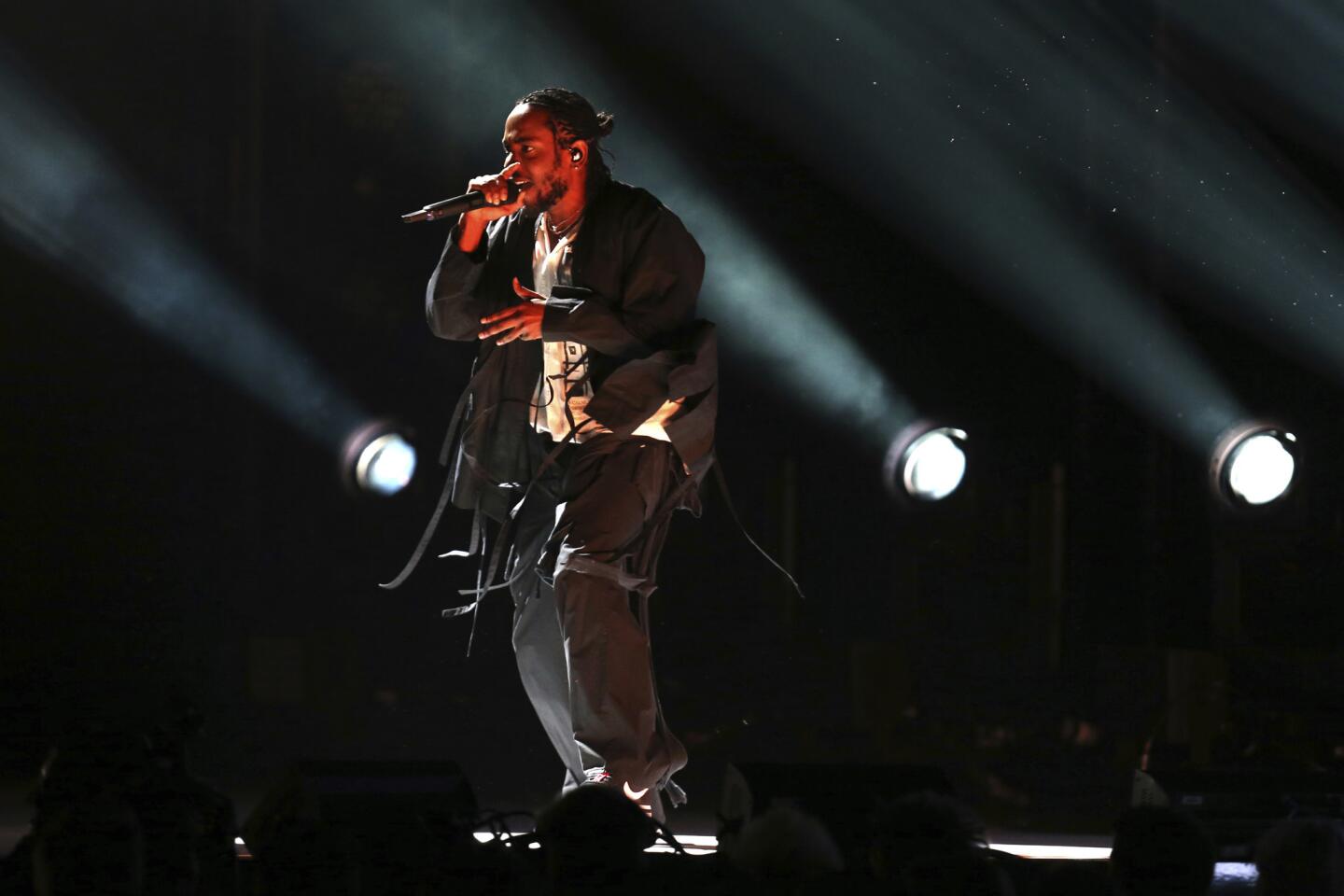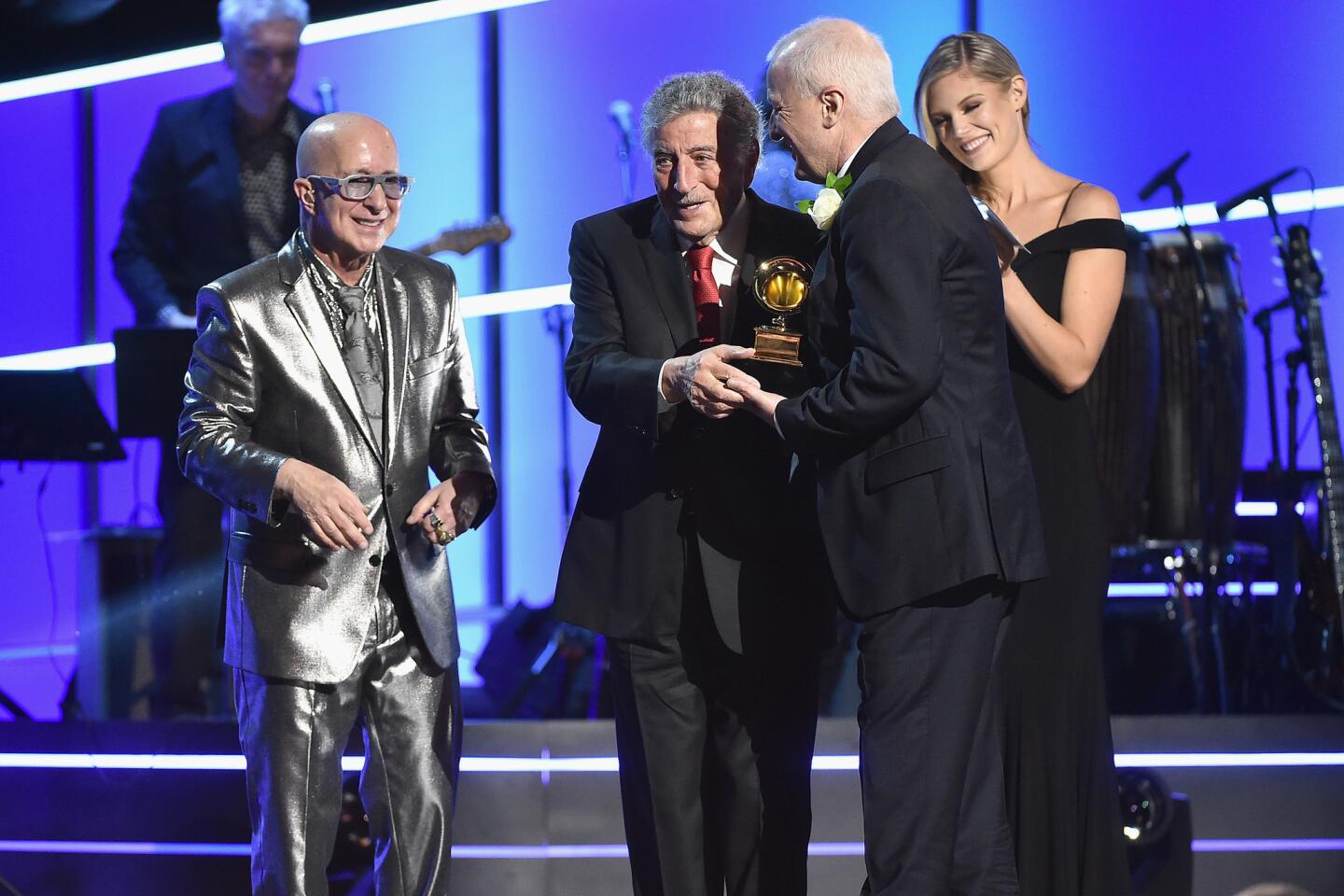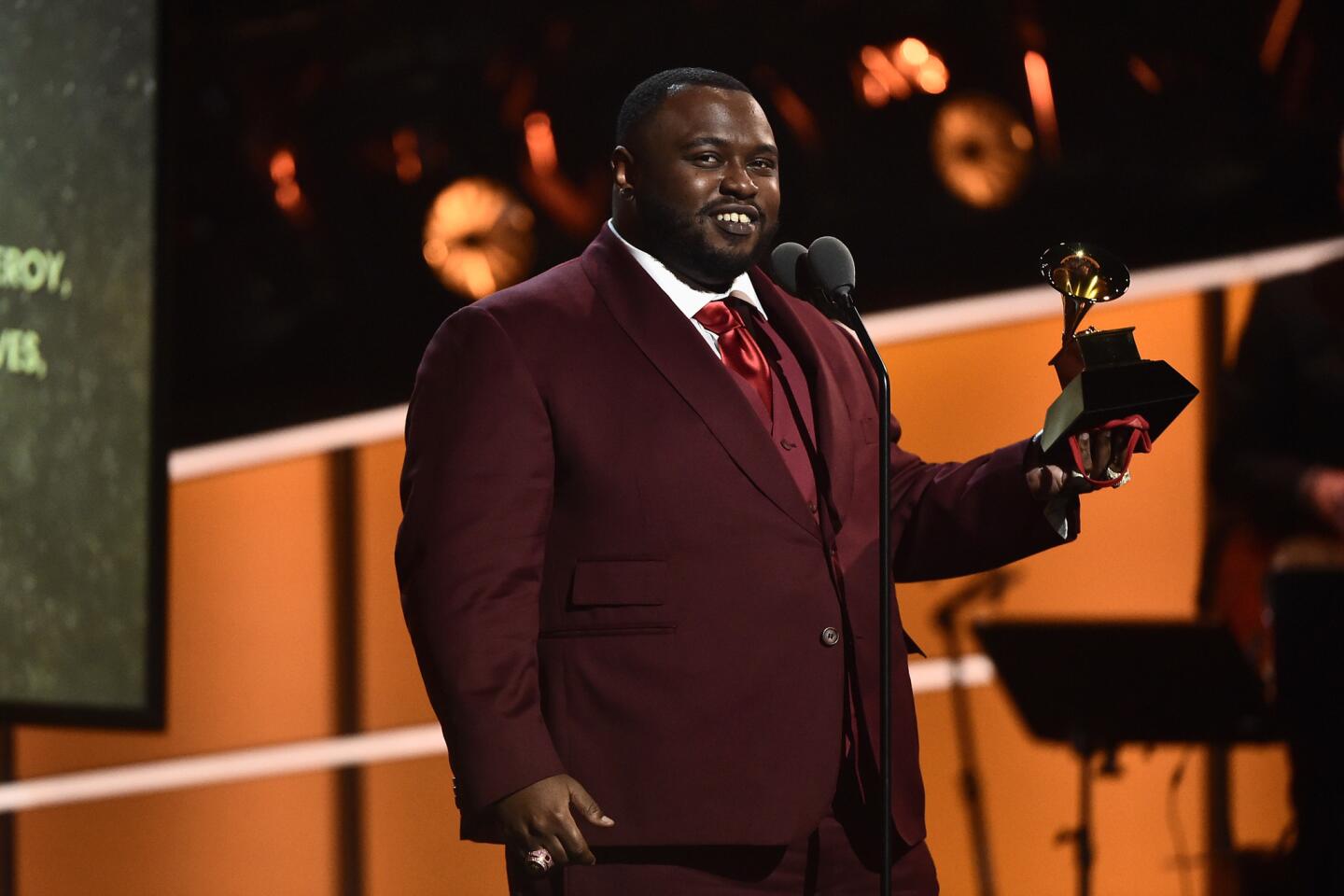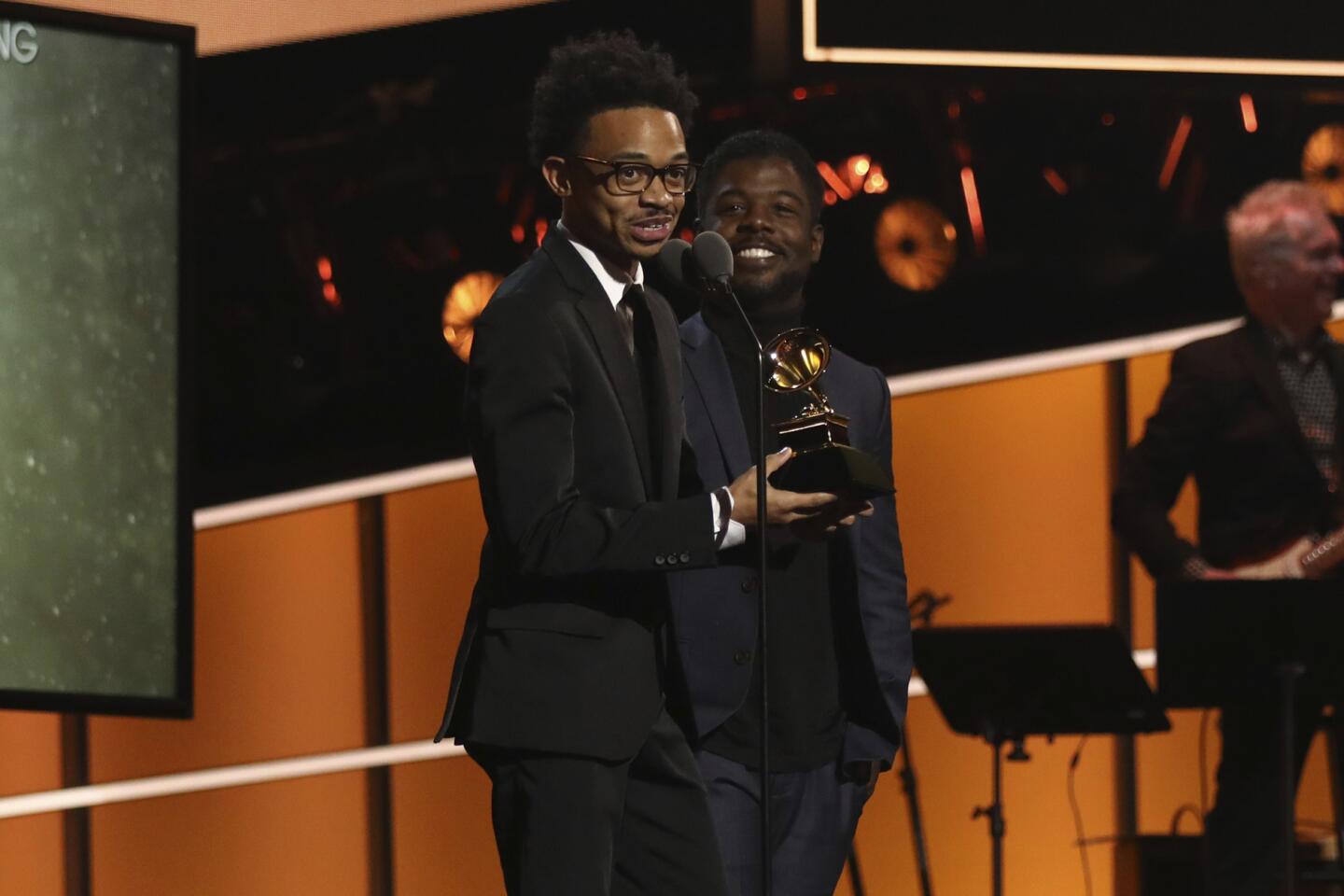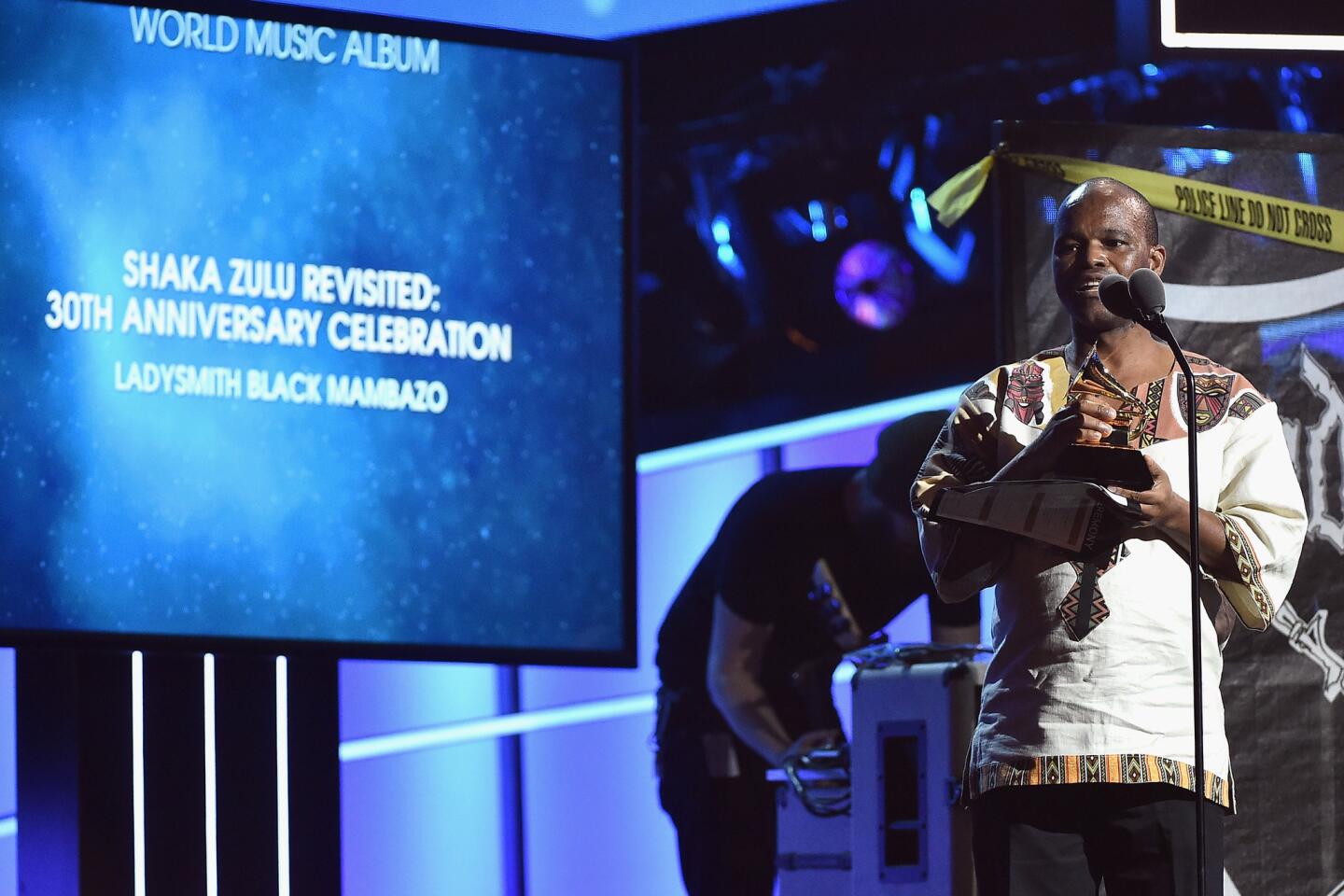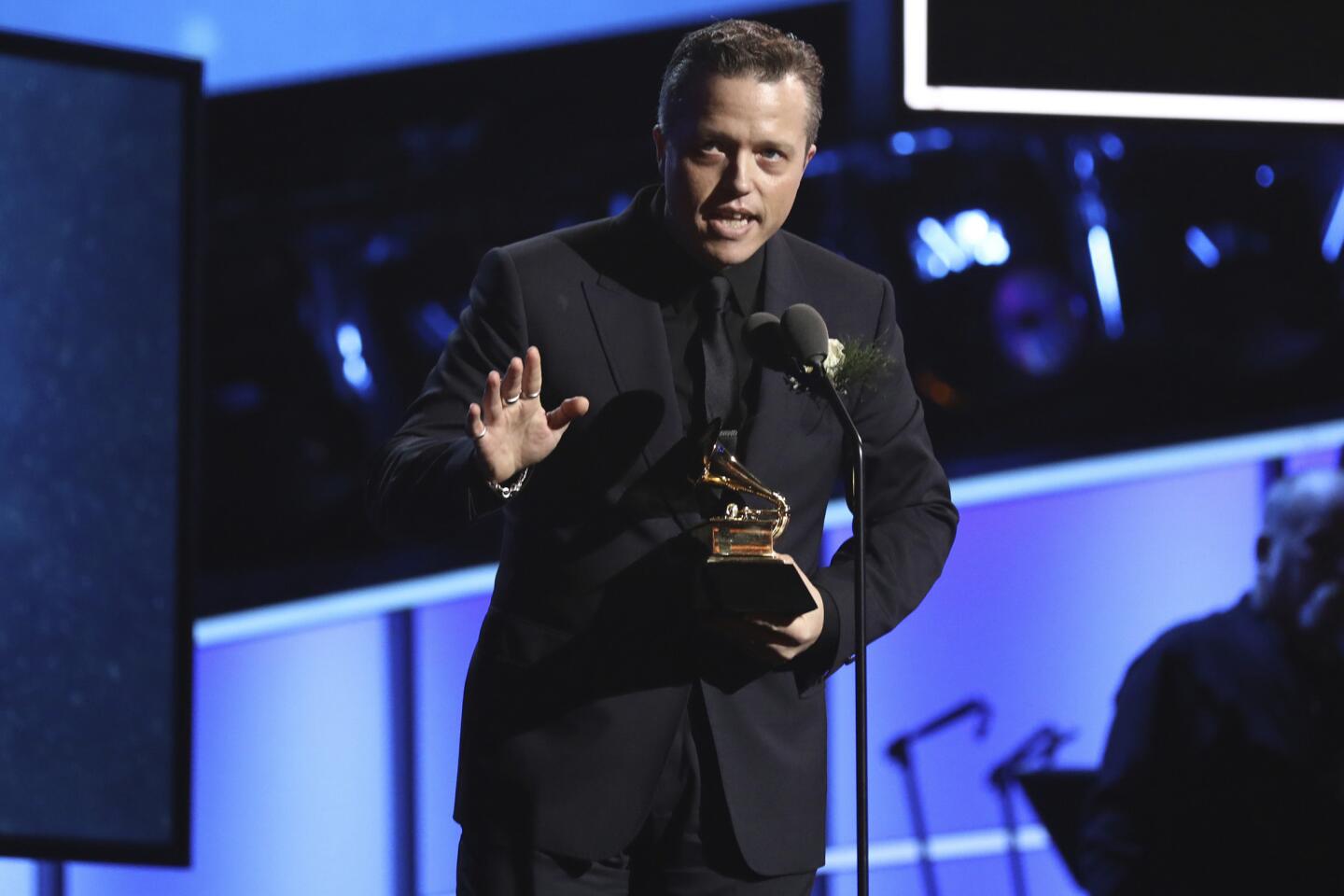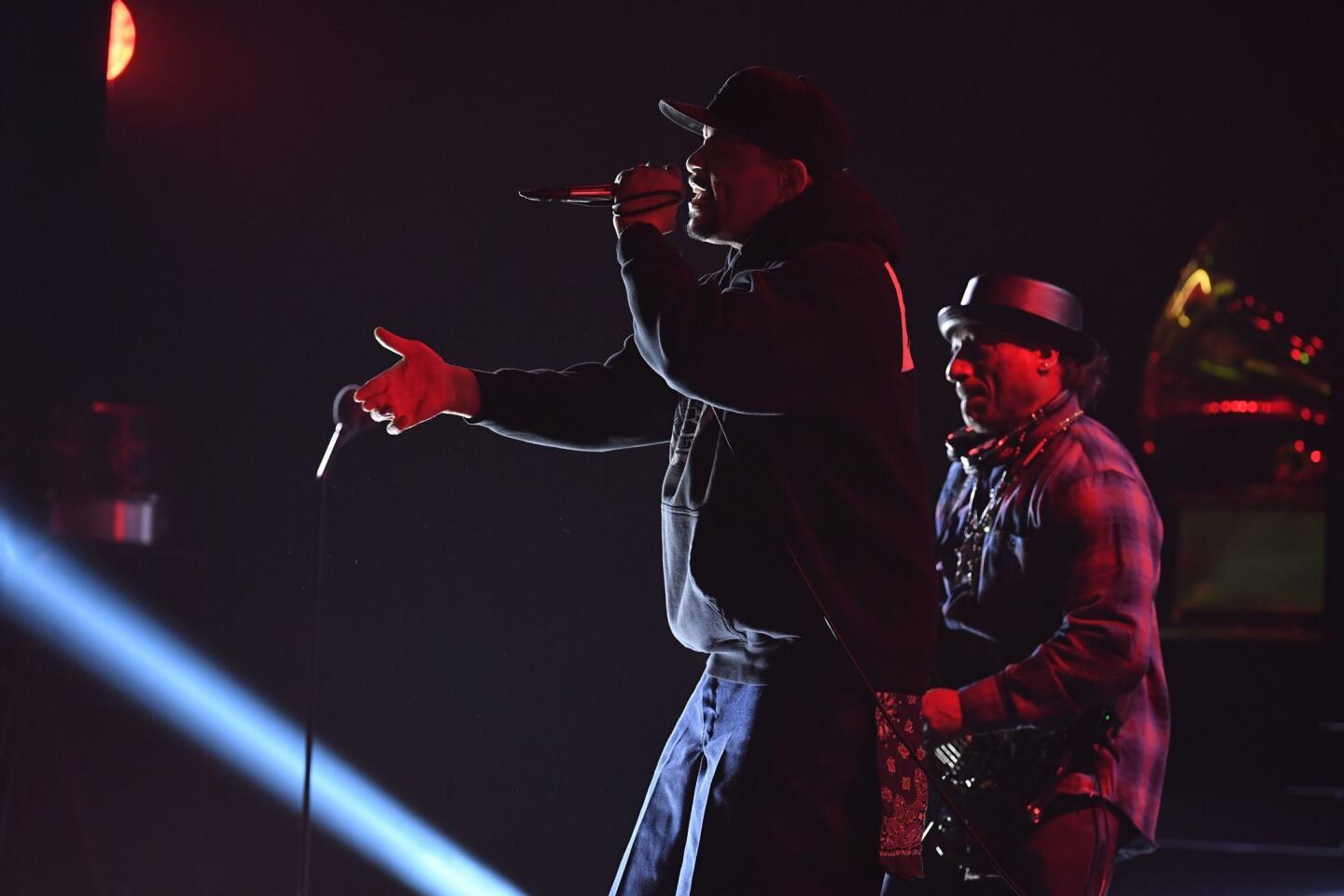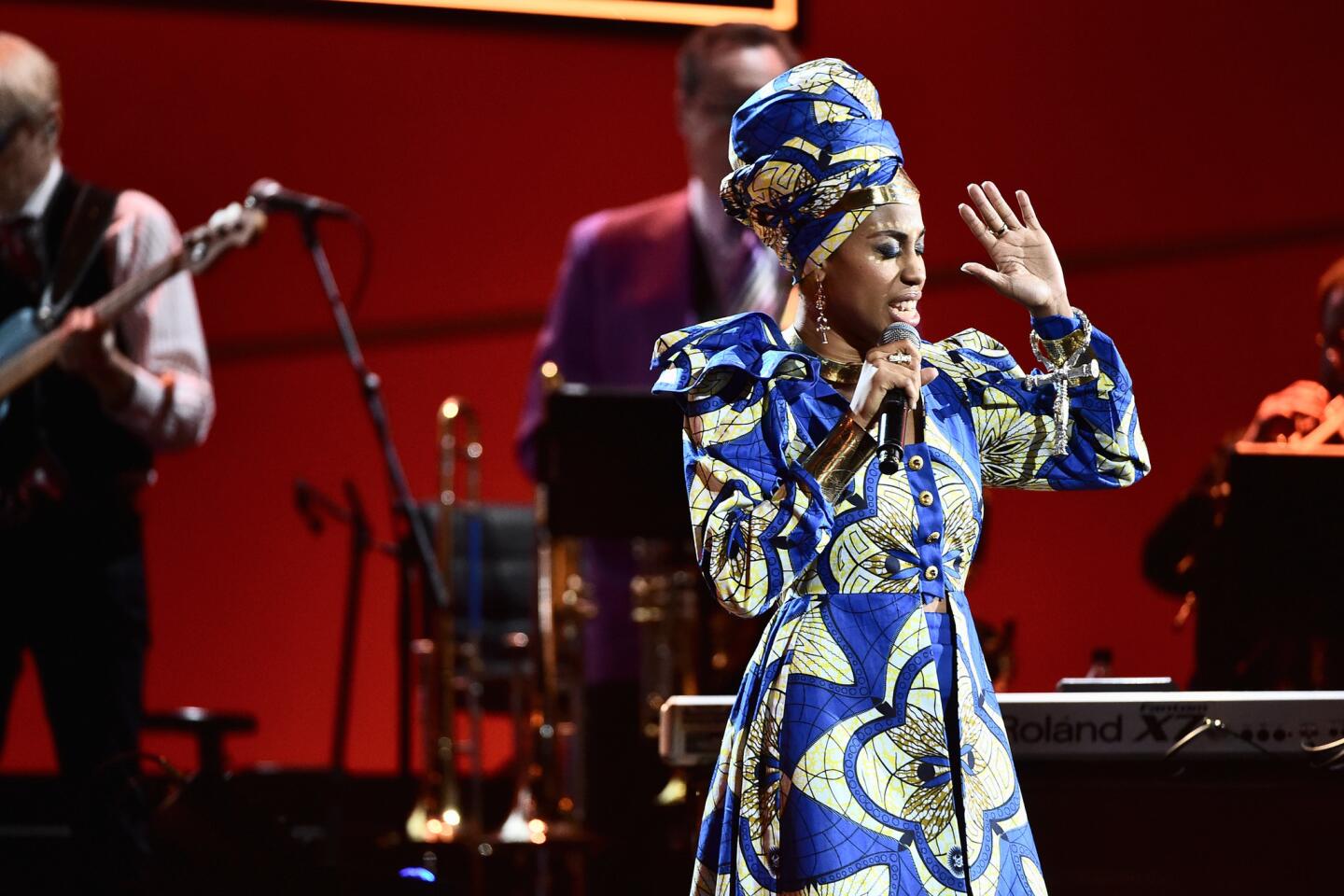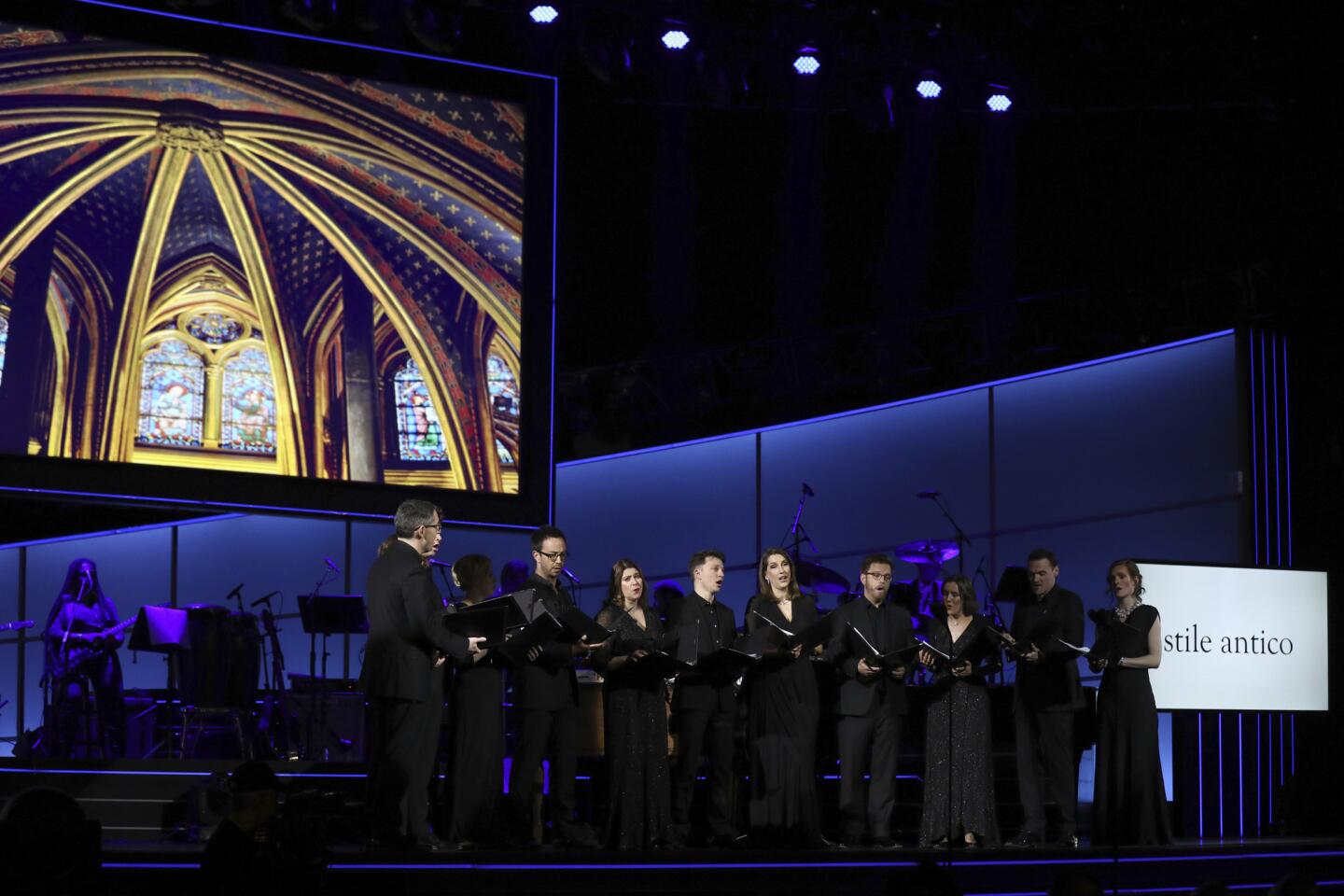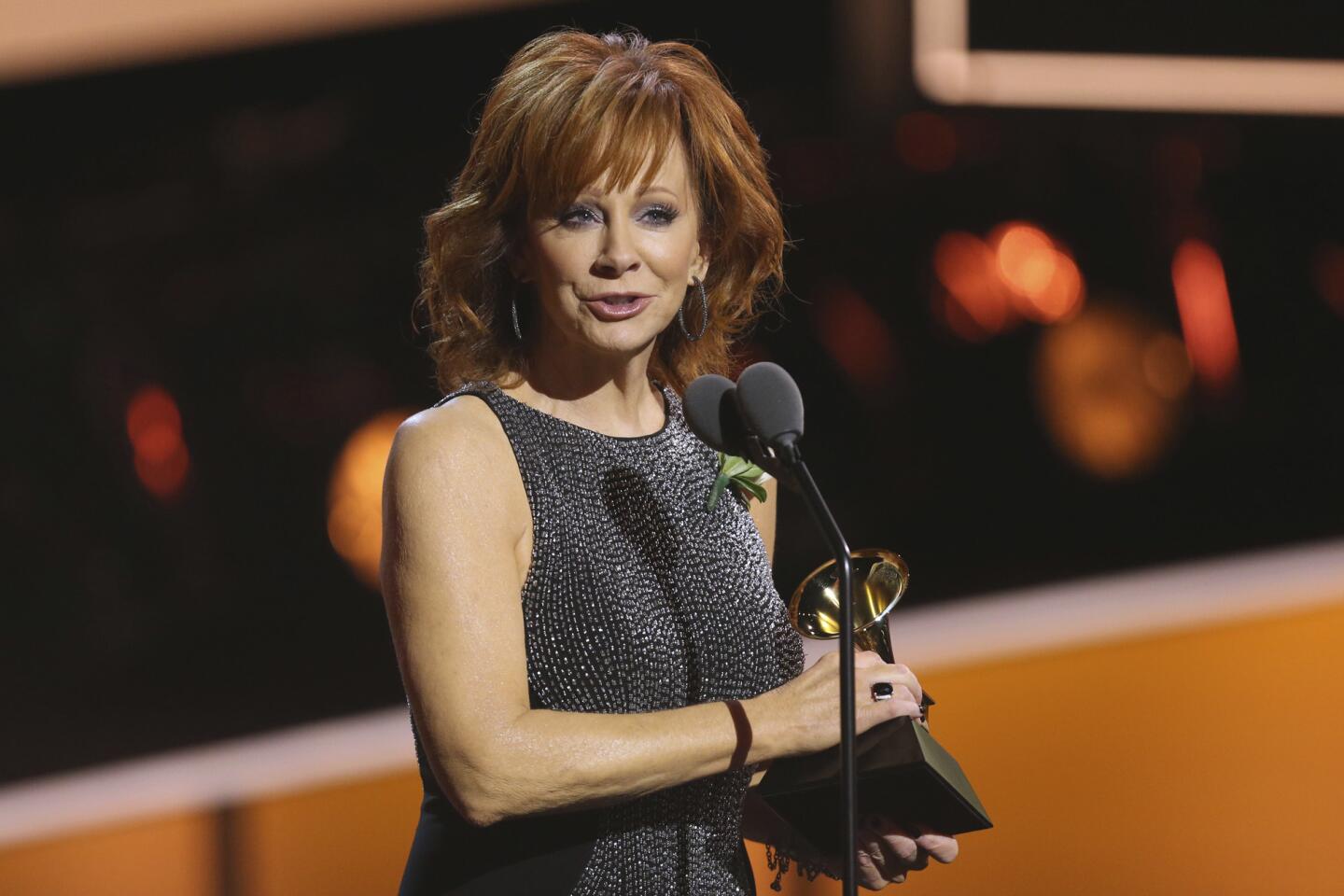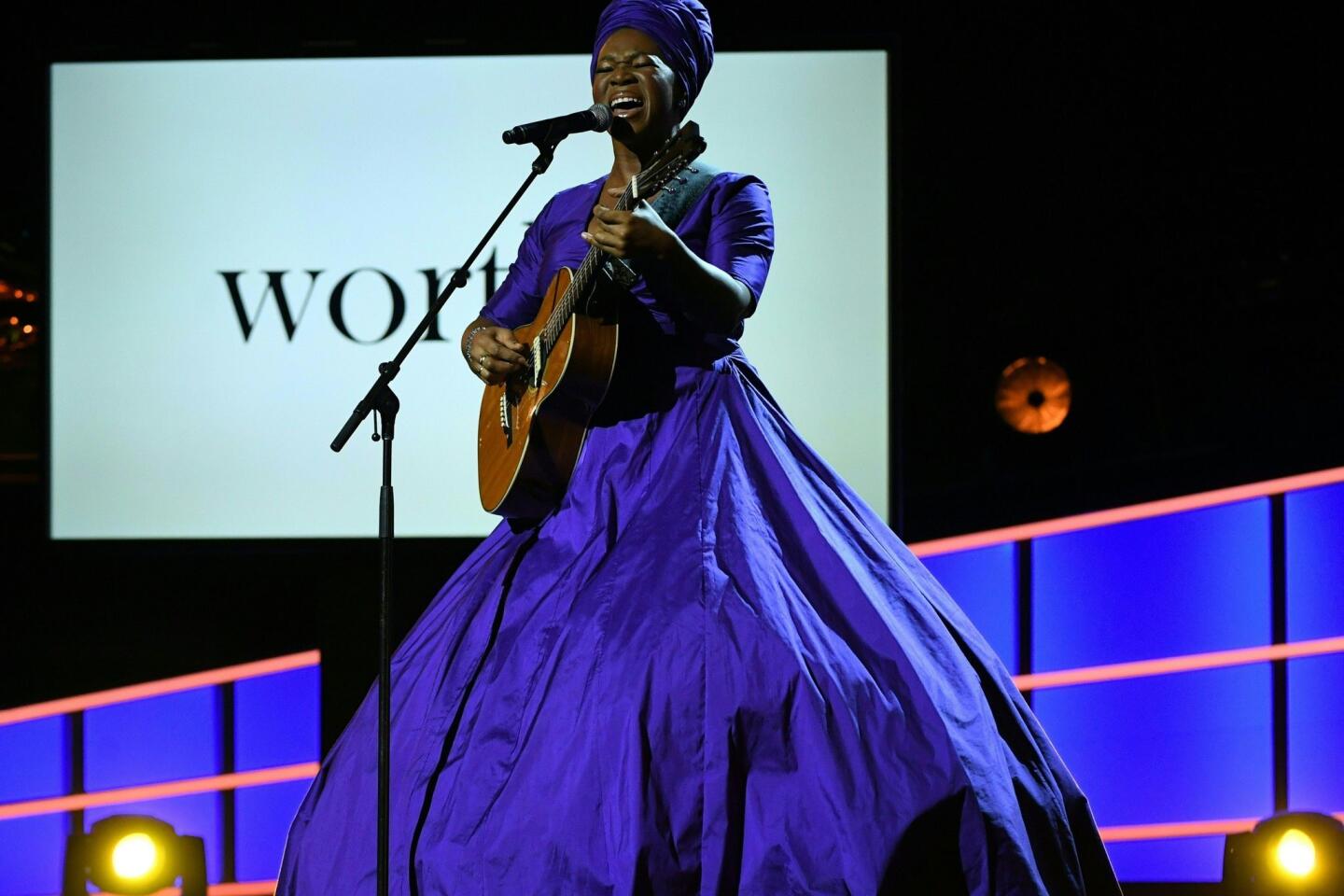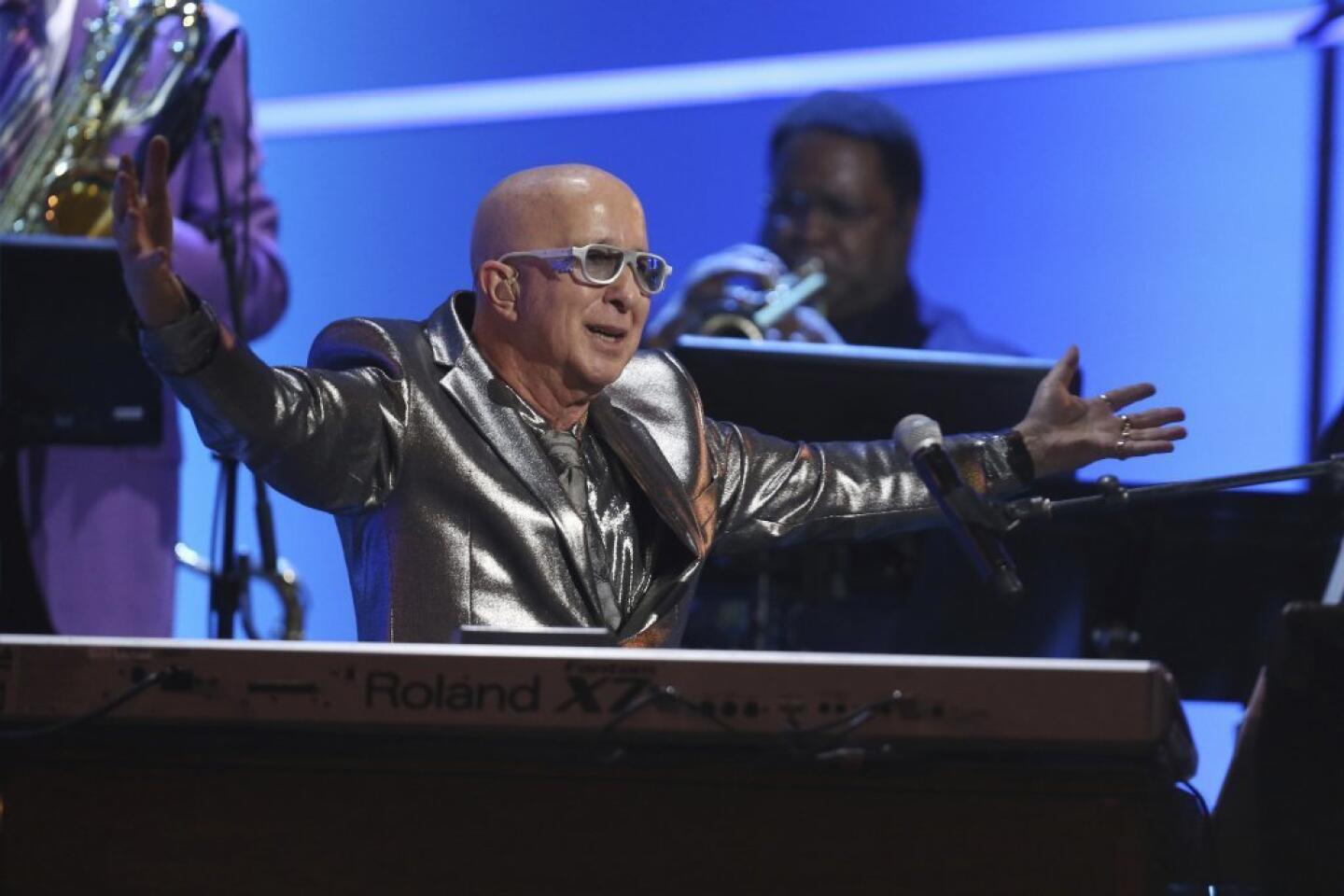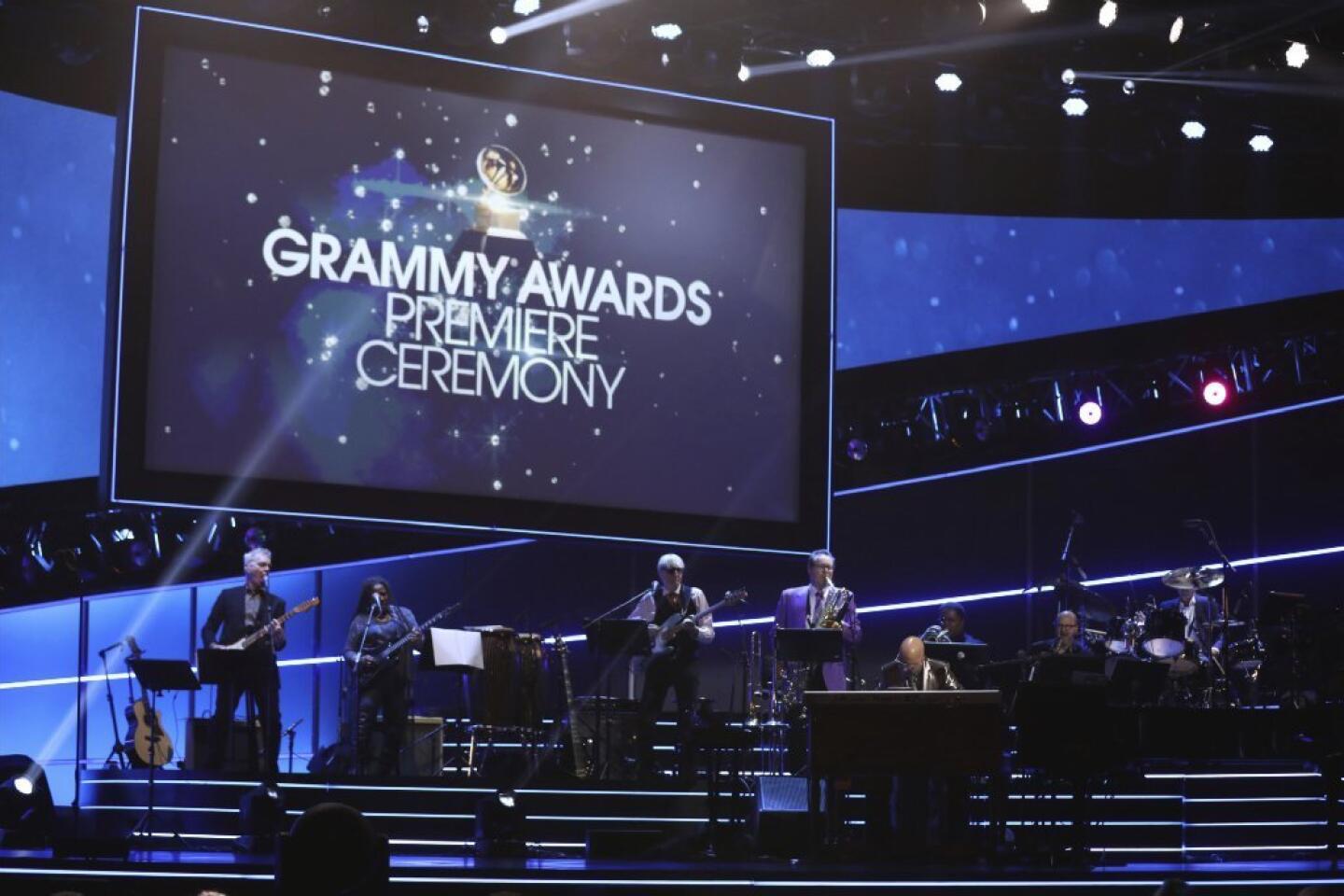After the Grammys, it may be time’s up for the music industry
And now it’s the Grammys’ turn.
So far, the Recording Academy has largely avoided the sort of criticism over lack of diversity that’s been leveled at the Oscars. But hours after men swept all but one of the categories given out on live television, #GrammysSoMale was trending.
Kesha’s impassioned performance of “Praying” was certainly the highlight of this year’s Grammys, but the audience’s emotional response to the anthem of female-empowerment appeared to be skin-deep when the song lost to Ed Sheeran’s “Shape of You” for pop solo performance.
Indeed, of the 84 Grammy categories handed out Sunday only a dozen or so went to women or acts co-led by women, which is pretty much in keeping with the damning research paper recently published by Stacy L. Smith, Marc Choueiti and Kate Pieper of the USC Annenberg Inclusion Initiative. Looking at the gender breakdown of nominees, it found that just 9.3% of them between 2013 and 2018 were female.
Having apparently learned nothing from the many men forced to walk back tone-deaf commentary during the #MeToo movement, Recording Academy President Neil Portnow almost immediately made things worse. He responded to the hashtag by urging women to “step up.”
Grammys 2018: Complete list of winners and nominees »
Just as if he hadn’t listened to Kesha’s song, or to singer, actor and producer Janelle Monae’s introduction: “To those who would dare try and silence us, we offer you two words: Time’s up.”
Identifying issues including wage inequality, discrimination, harassment and abuse of power, she declared, “It’s not just going on in Hollywood. It’s not just going on in Washington. It’s right here in our industry as well.”
Just like the #OscarsSoWhite campaign forced the film academy to reconsider its almost all-white, mostly male membership, this year’s male-dominated Grammy results prompted many variations on the same unanswered question: Who, exactly, is deciding the winners of music’s most coveted award?
Hard to tell. Like the Academy of Motion Picture Arts and Sciences’ demographics before The Times investigated and revealed its membership in 2012, the Recording Academy’s have long been a mystery. It is made up of 24,000 professionals who work in all aspects of the business — producers and engineers, label executives, music publishers and artists, of which 13,000 are eligible voters. (By comparison, there are roughly 8,400 members in the film academy.)
But the leadership remains unwilling to offer basic data on its voters, such as race and gender.
At the Grammys post-telecast press conference, Portnow was asked directly about male domination on Sunday.
“I think it has to begin with women who have the creativity in their hearts and their souls,” he answered, “who want to be musicians, who want to be engineers, who want to be producers, who want to be part of the industry on an executive level — to step up, because I think they would be welcome,” Portnow said.
The backlash was swift.
“Neil getting up there and saying that women should ‘step up’ just shows just out of touch he is and how out of touch the organization is,” said Dorothy Carvello, the former record executive and author of the upcoming music-industry memoir “Anything for a Hit: An A&R Woman’s Story of Surviving the Music Industry.”
“Women in music don’t need to ‘step up’ – women have been stepping since the beginning of time,” recording artist Pink posted on Twitter. “Stepping up, and also stepping aside. Women owned music this year. They’ve been killing it. And every year before this.”
The Recording Academy did not respond to repeated requests for comment.
Further inflaming many critically-attuned music fans, for the coveted album of the year Grammy the academy overlooked widely regarded and topical hip-hop releases from Kendrick Lamar and Jay-Z in favor of Bruno Mars’ album of retro-focused pop, “24K Magic.”
The slight renewed long-held criticism that, absent a diverse membership, the Grammys were denying a major award to rap, the culture’s dominant musical genre for going on two decades now.
Over the years the academy has repeatedly been called out by Kanye West, J. Cole, 50 Cent, rap mogul Steve Stoute (he once spent $40,000 on an ad to criticize the awards) and Jay-Z, who went home empty-handed despite having the most nominations this year.
In the weeks before Sunday’s awards, Jay-Z was set to perform but ultimately pulled out. Producers said the rapper simply wanted to “enjoy” the night, but it’s hard not to flash back to last year when he watched his wife, Beyoncé, shut out in major categories — a snub felt by many, including the night’s big winner, Adele. “What the … does she have to do to win album of the year?” Adele said backstage.
Last year, Chance the Rapper became the the first black hip-hop artist since Lauryn Hill in 1999 to win the trophy for new artist. Song and record of the year trophies have never gone to rap artists. Had Jay-Z or Lamar taken the night’s biggest honor, album of the year, he would have only been the third rap artist to do so.
When asked whether the telecast needed to have more rap showcased on-air this year given the genre’s dominance in nominations, Portnow said he didn’t think so, at least not during this year’s 60th anniversary return to the East Coast.
“It’s got to be a balance,” he said.
For Portnow, the goal is “creating the night to be a real experience, and something special that people will talk about for years. We have to play to all of that.”
Acknowledging that he didn’t have personal experience “with the kinds of brick walls that [women] face,” Portnow suggested widening the opportunities for inclusion by creating mentorships and opportunities “not only for women, but for all people. And, moving forward, creating that next generation of artists who feel like they can do anything and say anything.”
Whether the Grammys are leading by example is debatable: Ratings for this year’s CBS broadcast dropped 24% over last year’s show.
The criticism of the results comes less than a month after the launch of the high-profile Time’s Up campaign, geared to shed light on gender discrimination and sex abuse in the entertainment business. The initiative made its intentions prominently known at the Golden Globes. To extend the message on Sunday, an organization called Voices in Entertainment invited Grammy attendees to wear white roses in support.
“We can’t change the number of nominees, but the conversation changed completely,” stressed Meg Harkins, a marketing executive at Roc Nation and a co-founder of the white rose initiative. “To see Janelle Monae’s speech and all those women up there wearing white and supporting Kesha was incredible.”
Harkins agreed that the Grammys voting process was at least partly to blame for the outcome. “I’m a voting member, I’m a part of this institution,” she said. “The qualification for voting membership has to be reviewed. We have to be more inclusive if we’re going to make it better.”
During her Grammy acceptance speech for new artist, Alessia Cara – the lone female victor of the CBS broadcast – called for more opportunity for artists because “everyone deserves the same shot.”
“There’s some artists that have started some incredible trends,” she added, “and they don’t get the same shot because they aren’t on the charts or are particularly mainstream.”
Times staff writers August Brown and Gerrick D. Kennedy contributed to this report.
More to Read
The biggest entertainment stories
Get our big stories about Hollywood, film, television, music, arts, culture and more right in your inbox as soon as they publish.
You may occasionally receive promotional content from the Los Angeles Times.
